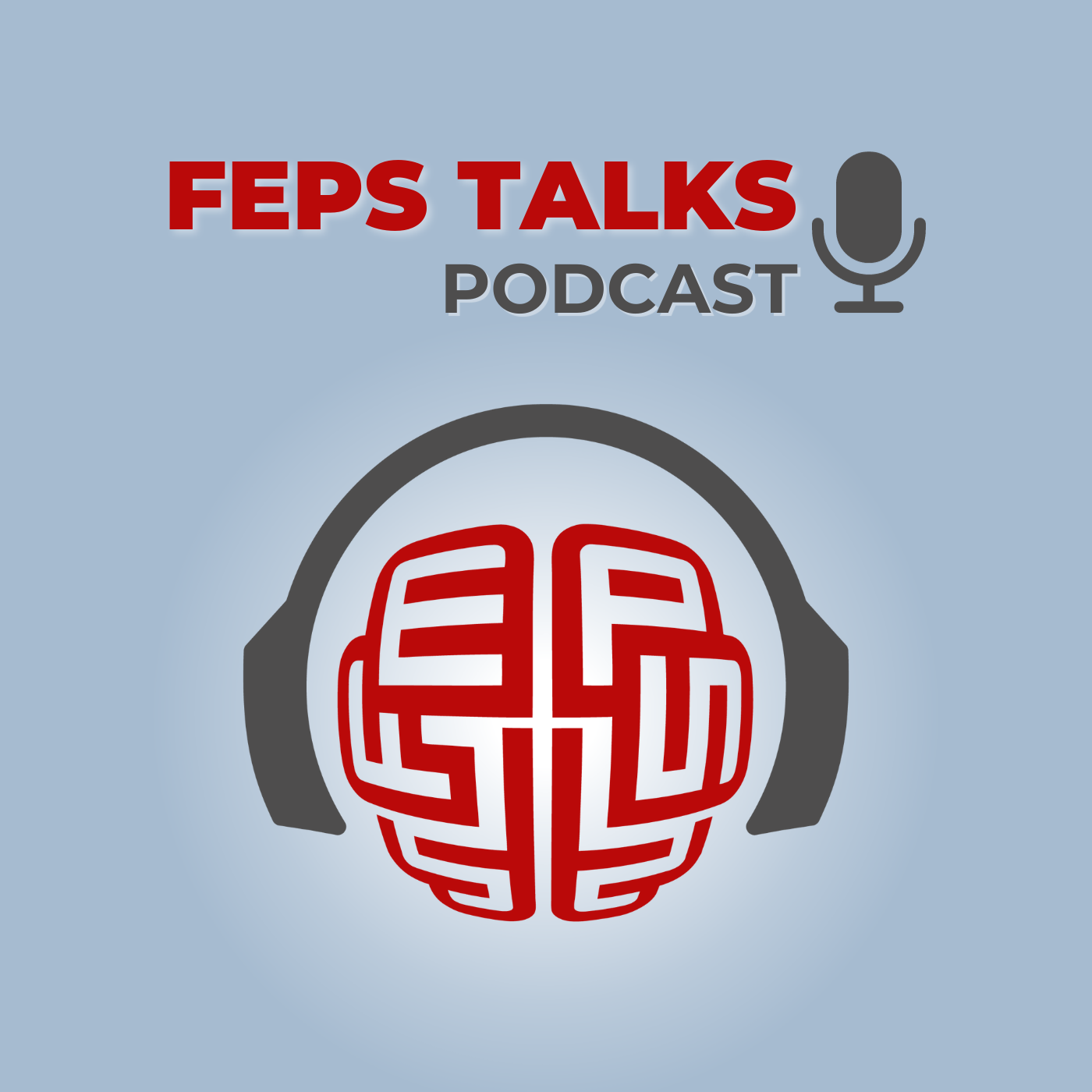FEPS Talks
Series of podcasts related with the research and policy activity of the Foundation for European Progressive Studies
Rethinking Security through Nuclear Disarmament with Florian Eblenkamp
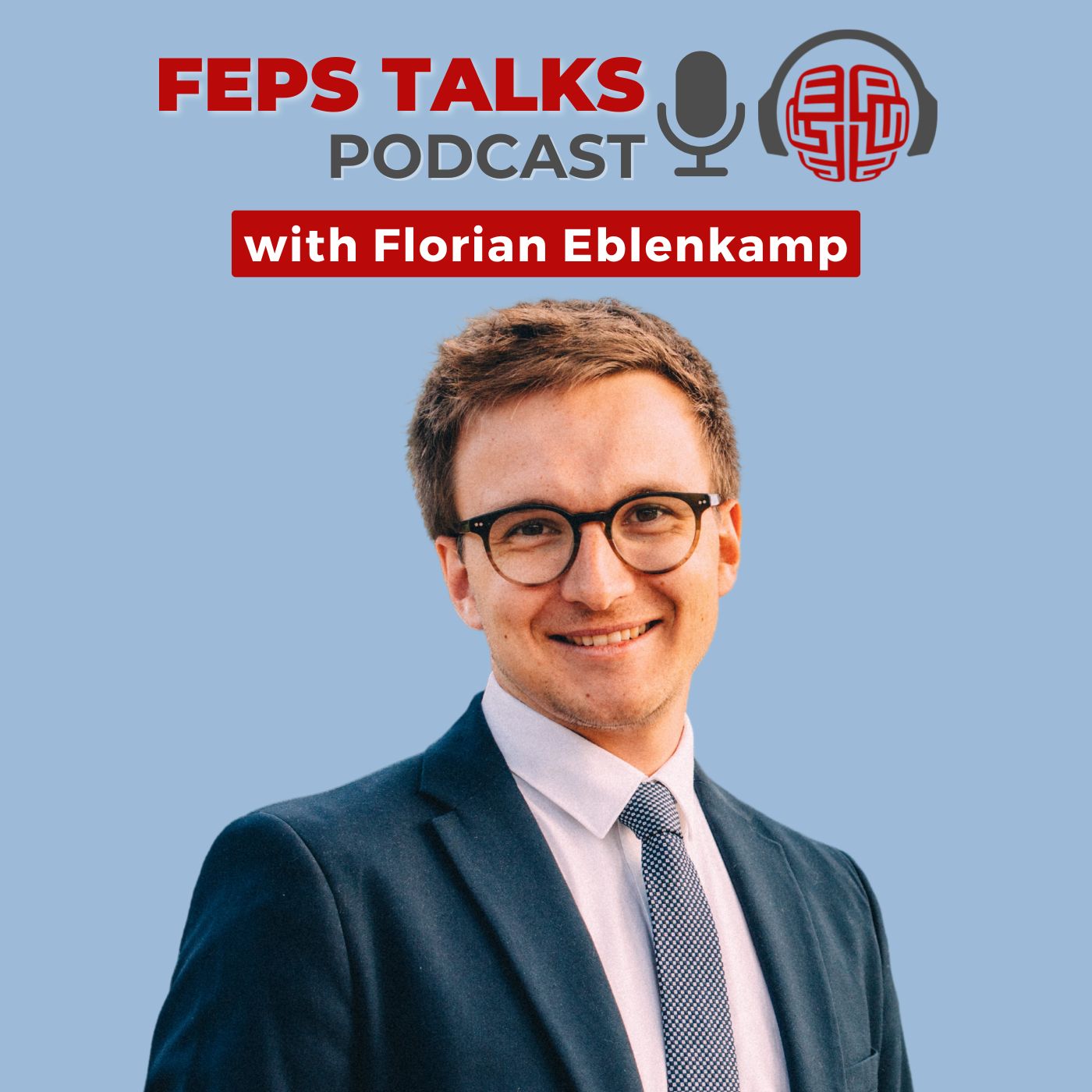
📺🔊 Available on YouTube, Spotify and Apple Podcast
Rethinking Security through Nuclear Disarmament with Florian Eblenkamp In this climate of militarisation and declining support for international law, some European countries are considering nuclear weapons a legitimate defence strategy, with calls even emerging for the development of a European nuclear programme.
We interview Florian Eblenkamp, Advocacy Officer at the International Campaign to Abolish Nuclear Weapons (ICAN)—the 2017 Nobel Peace Prize-winning organisation—to discuss the differing positions of European countries, NATO, and the broader international debate on nuclear disarmament.
He demystifies the alleged military and deterrent effect of...
Improving working conditions: the new frontiers with Michelle O’Sullivan
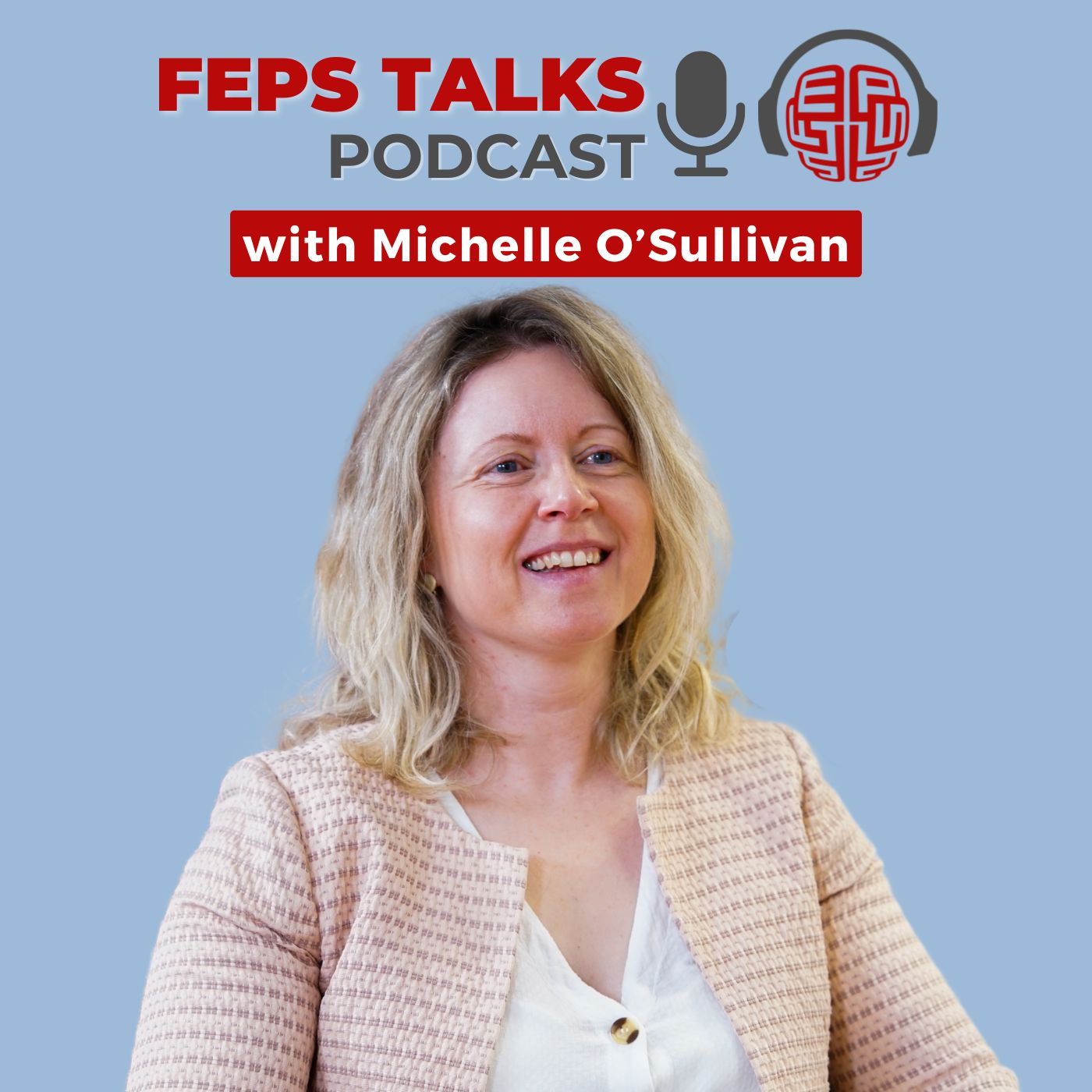
🔊📺 Available on Youtube, Spotify and Apple Podcast
Michelle O’Sullivan, Associate Professor at the University of Limerick, and member of FEPS Scientific Council, offers an assessment of recent developments in working conditions and industrial relations, including the successful crisis response to the Covid-19 pandemic. There are certainly fears that after a period of progress, Europe might be going backwards today, driven by the general intention to boost economic competitiveness.
Her country, Ireland definitely suffered a setback 15 years ago, at the time of the great financial crisis, and the consequences are still felt. When it comes to conte...
Creating and keeping peace with John Karlsrud
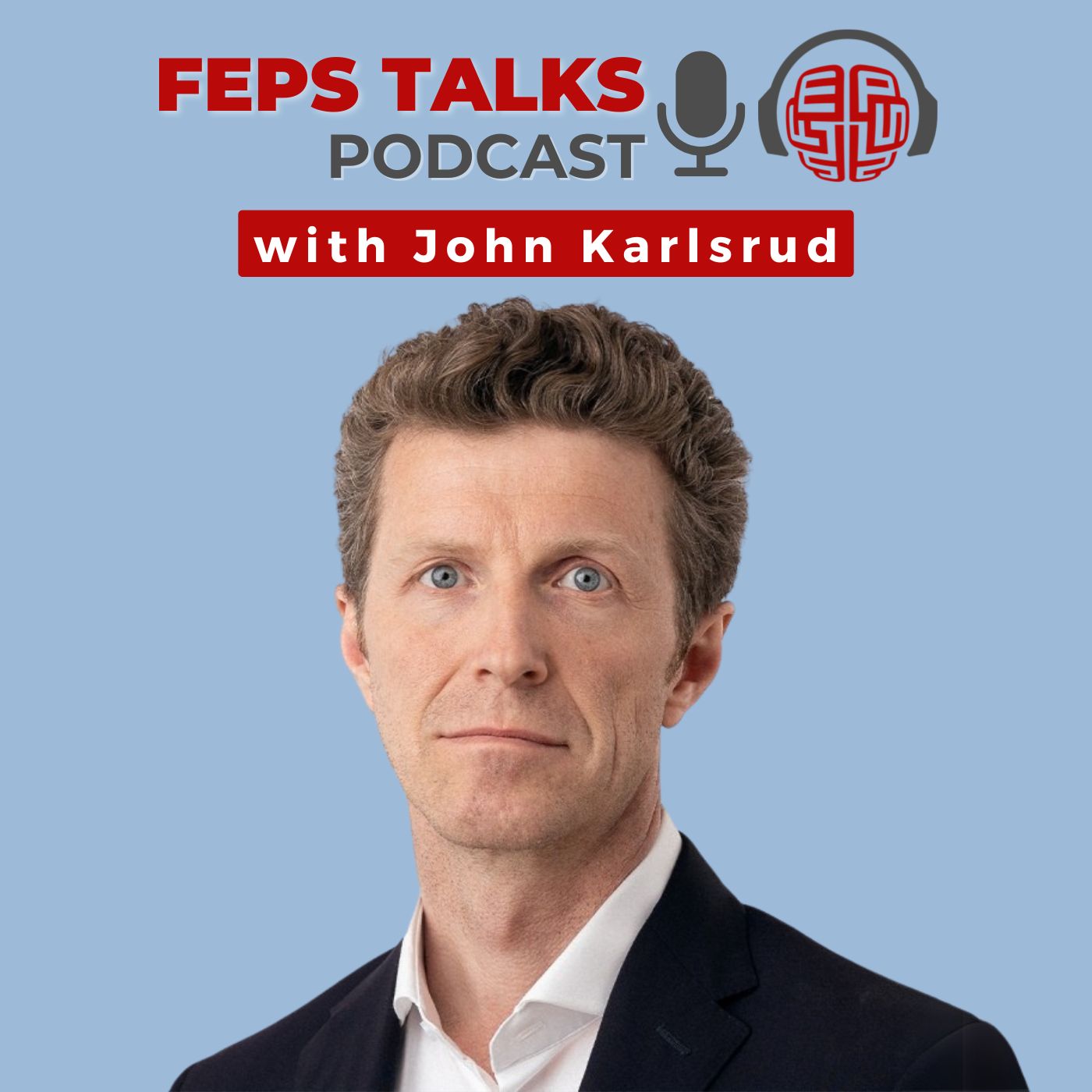
Peace keeping expert Prof. John Karlsrud (head of the international NAVIGATOR research project) comments on the current European discussion regarding the creation and maintanence of peace in Ukraine. He puts forward concrete ideas regarding the composition of peace keeping forces in Ukraine, and clarifies why the United Nations could not have been more instrumental during the last 3 years of war. Prof. Karlsrud is strongly in favour of EU enlargement, including to foster peace in the Western Balkans, and finally he also comments on the broader European institutional architecture, highlighting the significance of old organisations like the OSCE and new...
Becoming less dependent on Big Tech with Cecilia Rikap
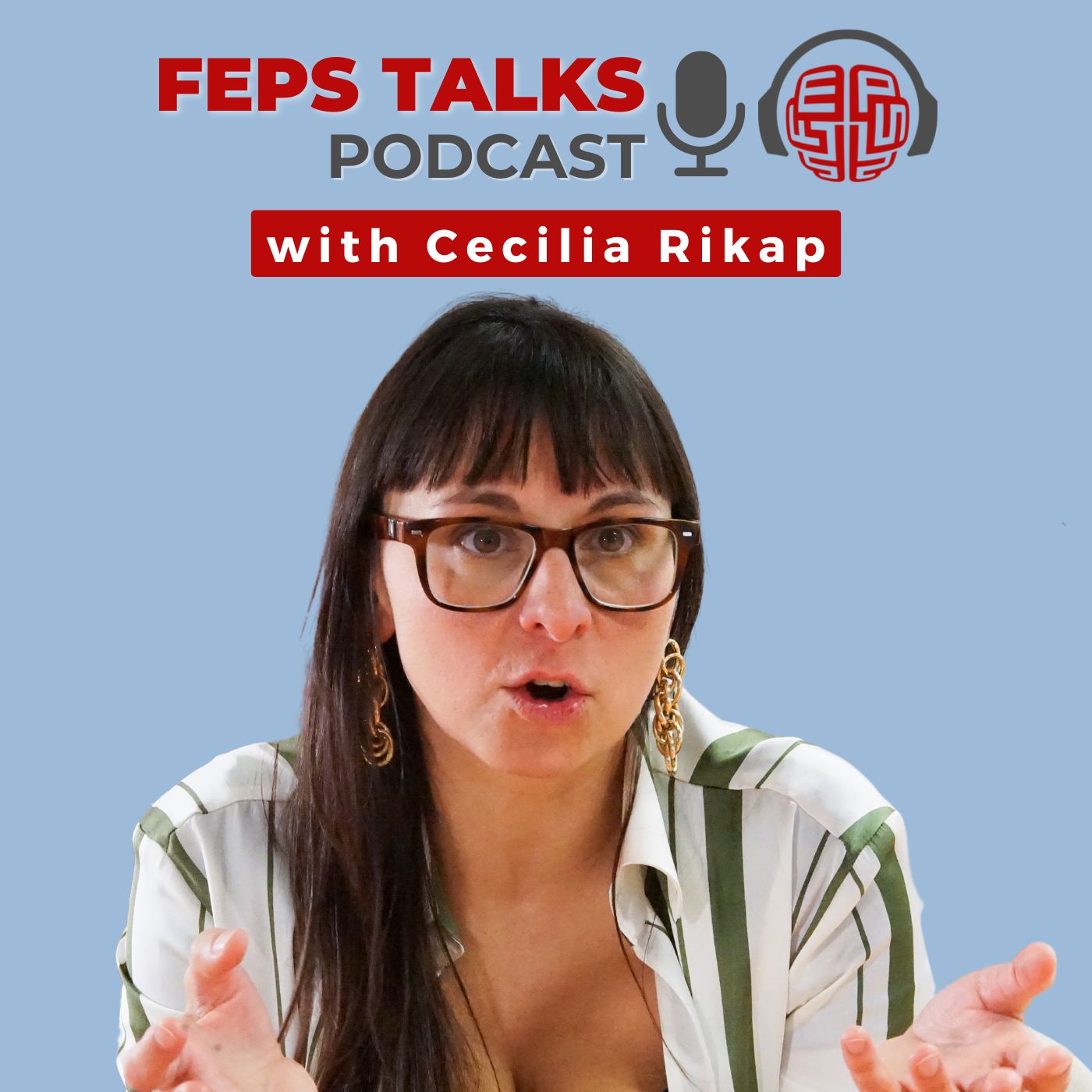
🔊📺 Available on Youtube, Spotify and Apple Podcast
Now that the transatlantic alliance has come under pressure with actions and statements of the Trump administration, it becomes ever more urgent to address the issue of the EU’s reliance on US tech for its essential digital infrastructure. 80% of our technology is provided by foreign actors.
That is why in this episode of FEPS Talks our guest Cecilia Rikap, Head of Research of the UCL Institute for Innovation and Public Purpose (IIPP), is interviewed by digital policy analyst Gerard Rinse Oosterwijk on her report - Reclaiming digital sovereig...
Silenced, censored, resisting: Feminist struggles in the digital age with Asha Allen
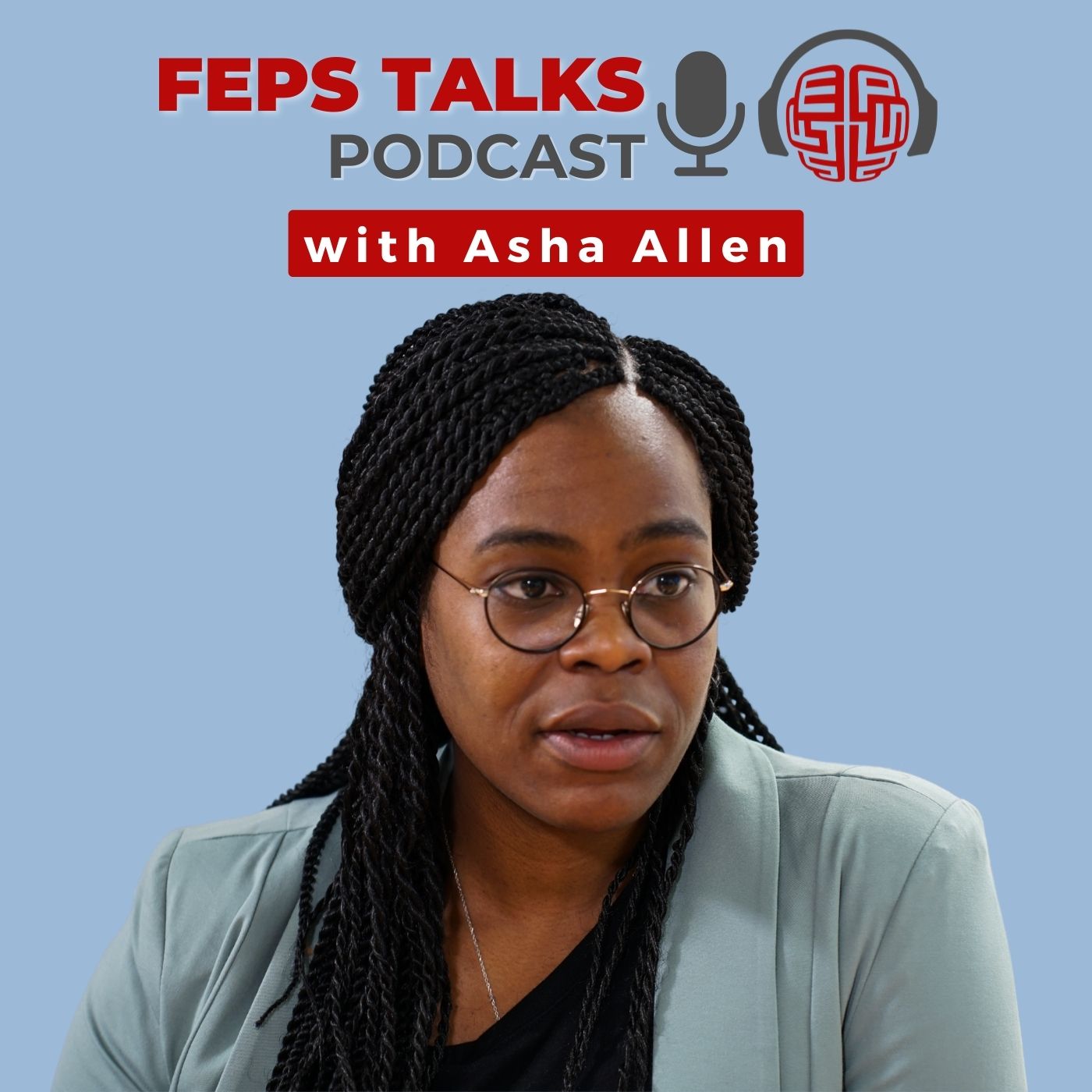
📺🔊 Available on Youtube Spotify and Apple Podcast
As International Women’s Day 2025 approaches, feminist movements face mounting threats from rising authoritarianism and Big Tech’s growing role in shaping public discourse. In this episode, Laeticia Thissen (Senior Policy Analyst on Gender Equality, FEPS) speaks with Asha Allen (Director and Secretary General, Center for Democracy & Technology Europe) about the increasing censorship of feminist and LGBTQ+ advocacy by platforms like Meta and X, the rollback of diversity and inclusion commitments by major tech companies, and the growing wave of online gender-based violence.
They explore the role of the EU Dig...
Ukraine’s housing policy in the face of war with Vita Shnaider

📺🔊 Available on Youtube Spotify and Apple Podcast
In the latest episode, Vita Shnaider, a Ukrainian anthropologist and a researcher of housing policy, joins us to discuss how the country’s housing sector has been reshaped by a decade-long war and Russia’s full-scale invasion in 2022 in particular.
We dive into the policies affecting displaced populations, examine the gaps in long-term housing solutions, and explore progressive strategies to rebuild a more equitable system. From rent regulation to social housing, we dive into the challenges and opportunities for Ukraine’s current war effort and its post-war recovery.
Competitiveness and Industrial Policy Beyond Buzzwords with Lukas Bertram
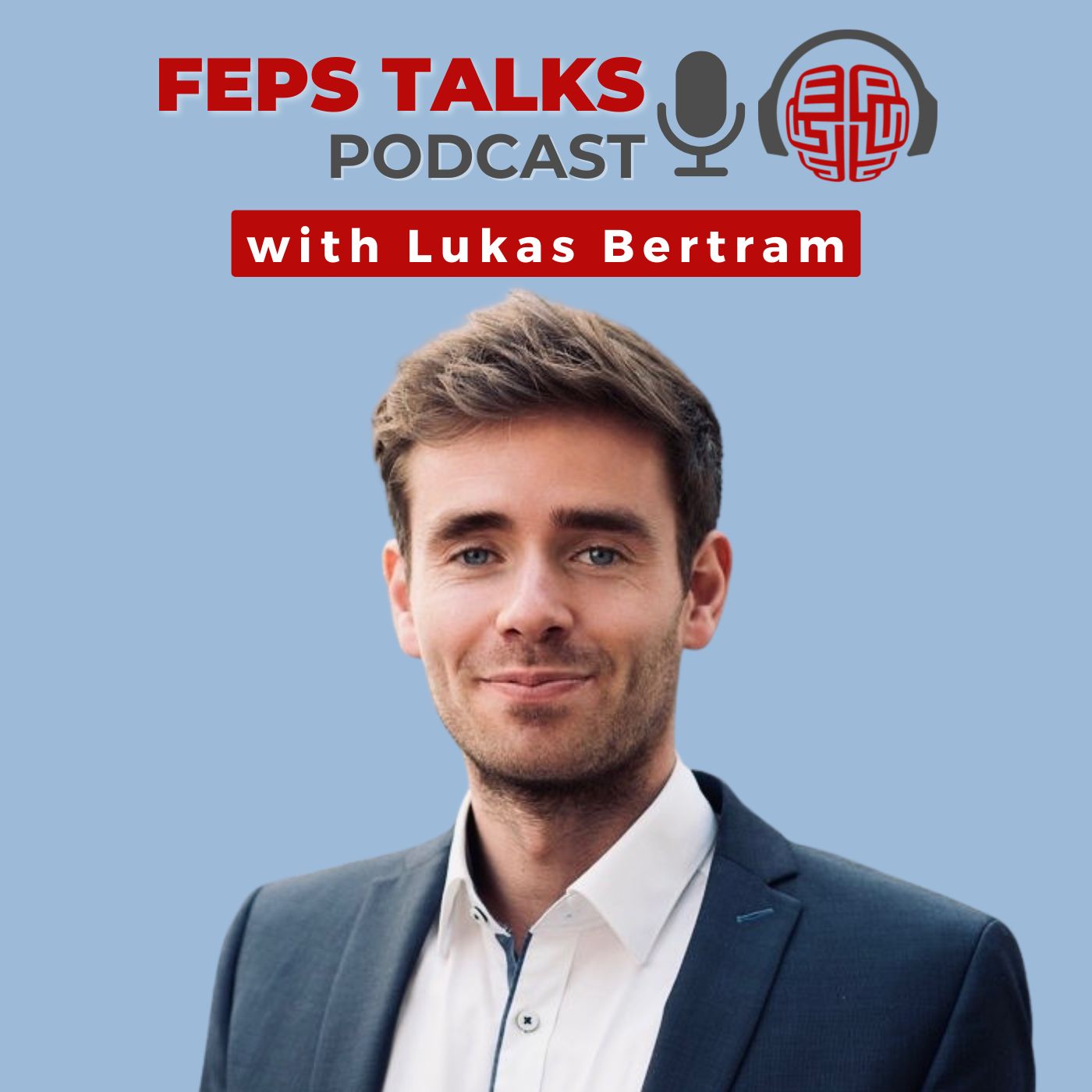
🔊📺 Available on Youtube, Spotify and Apple Podcast
How can Europe achieve a unified industrial strategy that balances competitiveness with social and regional cohesion? In this episode, FEPS welcomes Lukas Bertram, economist at the ZOE Institute for Future-Fit Economies, to delve into the findings of the recent policy study "A Unified Industrial Strategy for the EU."
Together with FEPS Director of Studies and Policy David Rinaldi, Lukas explores what it means to be strategic in fostering industrial renewal and the pivotal role of the public sector. The podcast clarifies the interlinkages between concepts like industrial policy and st...
EU and UK in the same boat with Jonathan Portes
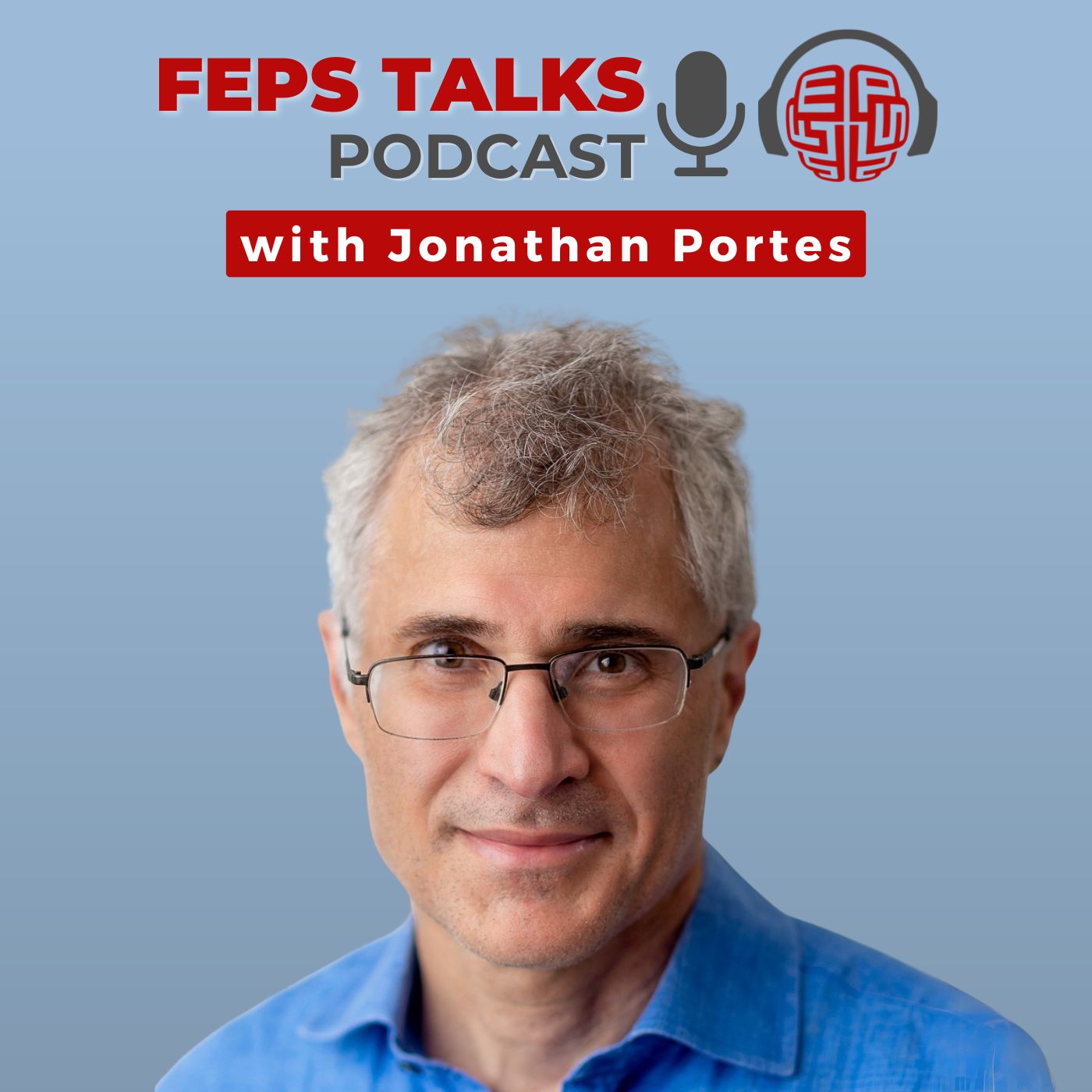
British economist and Professor Jonathan Portes (King’s College, London) explores how UK—EU relations have developed since the entry of the Labour government in July 2024. He explains that while regret among many is felt in Britain, not a single step of reintegration would be easy in the foreseeable future. There has been talk about some "low hanging fruits” (e.g. student mobility), but this also would require some political courage and concentration.
Nevertheless, the EU and the UK share some serious concerns like economic competiveness, on which they could work together. While the UK historically assumed to hav...
Civil society wants a new EU social agenda with Anne Van Lancker
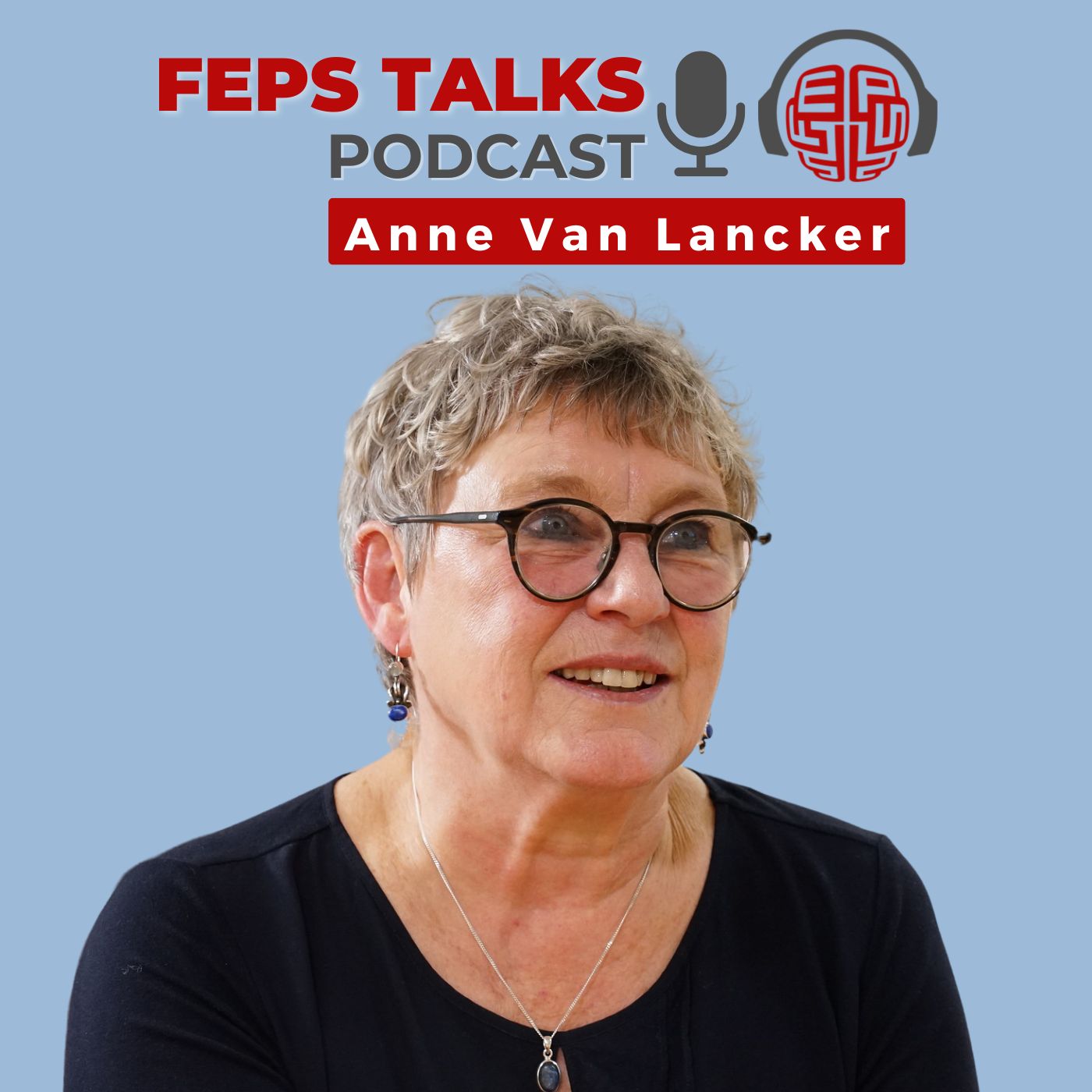
🔊📺 Available on Spotify, YouTube, and Apple Podcasts
In this episode of FEPS Talks, Anne Van Lancker (President of SOLIDAR and former MEP from Belgium) speaks about the evolving social agenda of the EU. Civil society organisations united in SOLIDAR consider the European Pillar of Social Rights as a game changer and an inspiration for social policy action in the EU with further potential to generate improvements. Behind us is a “Golden Age” of social policy initiatives at EU level but now there is a lot to do for implementation. Furthermore, since recently a poverty reduction target was set, an up...
Right turns and left leans: A new gender divide in young voters? with Gefjon Off
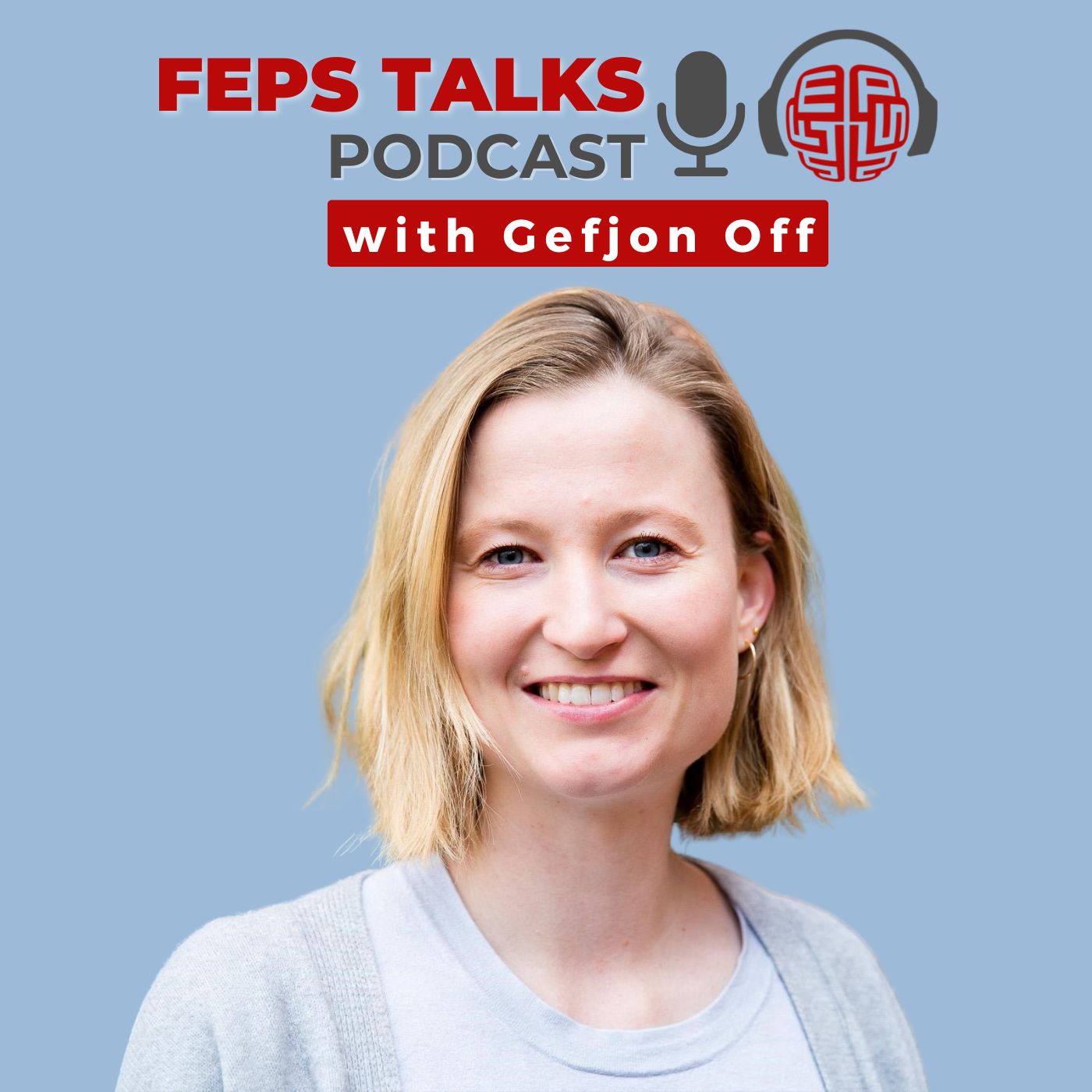
🔊📺 Available on Spotify, YouTube, and Apple Podcasts
In this episode of FEPS Talk, Policy Analyst Matteo Dressler sits down with Dr. Gefjon Off to unpack emerging differences in the political attitudes and voting patterns of young men and women.
Drawing on Gefjon’s own research and insights from a rapidly evolving field, we explore whether young women are truly growing more progressive while young men gravitate to the right—and, if so, what these shifts mean for progressive policymakers as they chart a path forward.
Redefining Care: Building a new Gender Equality Contract for Europe with Eugenia Caracciolo di Torella
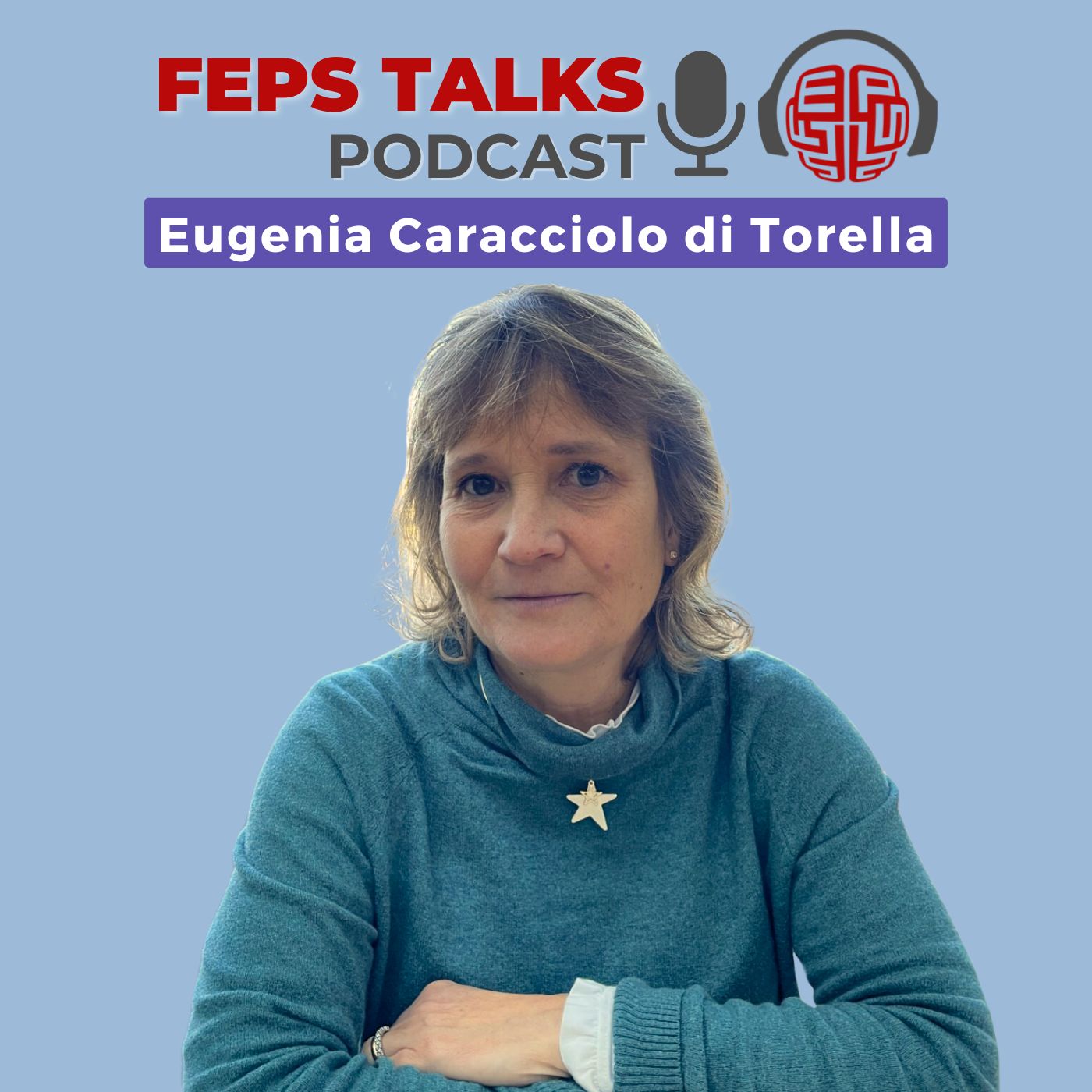
🔊📺 Available on Spotify, YouTube, and Apple Podcasts
In this episode of FEPS Talks, we sit down with Professor Eugenia Caracciolo di Torella to explore the transformative role of care in advancing gender equality. Drawing from her chapter in this new book initiated by FEPS and Fondation Jean Jaurès, "A New Gender Equality Contract for Europe," Eugenia sheds light on the challenges and opportunities of integrating care as a cornerstone of progressive policies.
From the lessons of the COVID-19 pandemic to the potential of the EU Care Strategy, this conversation highlights why care is central to buil...
COP29 and climate progress in a volatile age with Stephen Minas
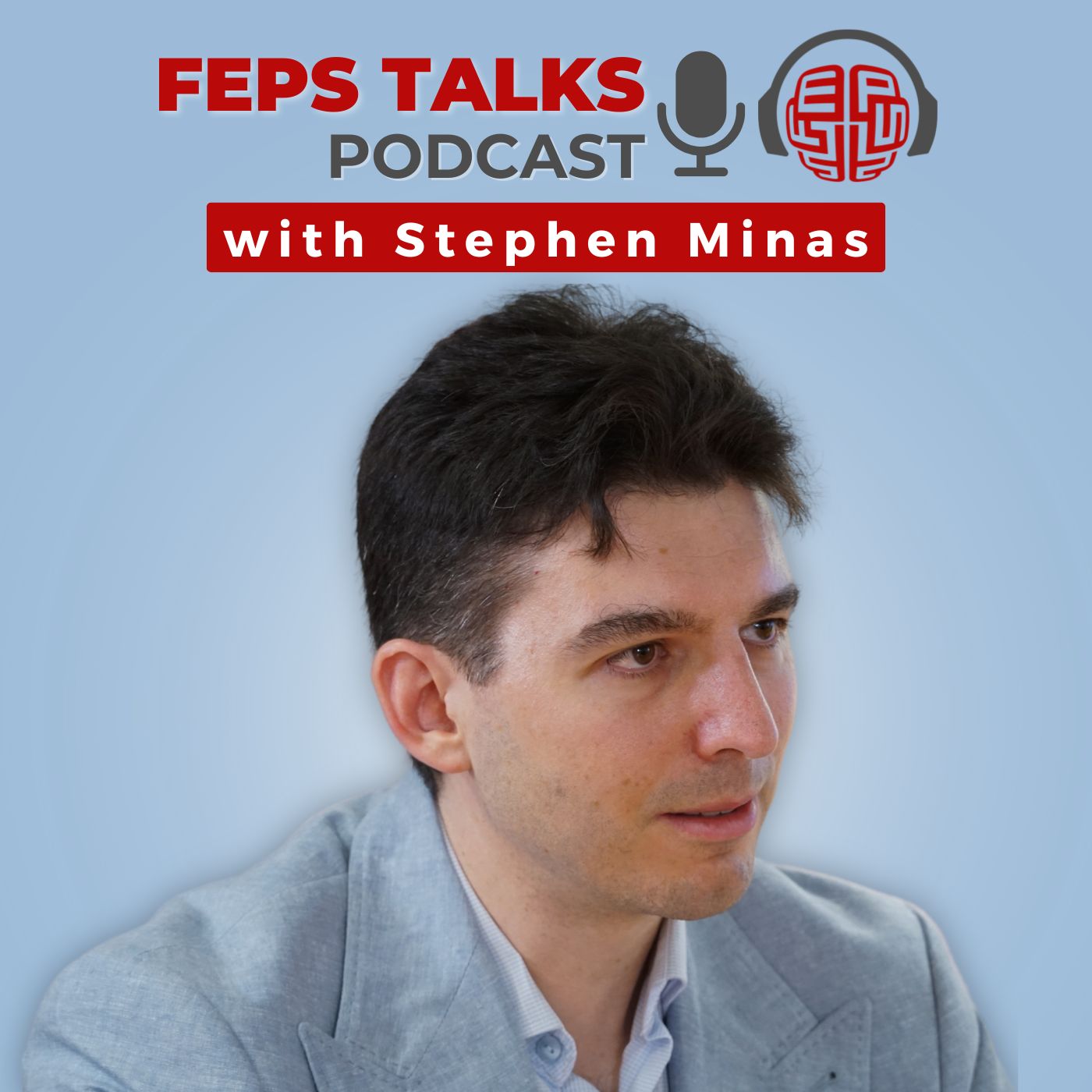
🔊📺 Available on Spotify, YouTube, and Apple Podcasts
With just days until the US presidential election and the COP29 climate conference, the global response to climate change hangs in the balance. Rocked by pandemic, war and a cost-of-living crisis, the commitment of countries and citizens to ambitious climate policy is being tested as never before.
But the climate crisis has not gone away. In this episode, Stephen Minas, author of the FEPS Primer ‘Climate Progress in the EU and the World’, and Thomas Fröhlich, FEPS Policy Analyst on Climate, discuss international climate politics, what actually happens at...
A digital union based on EU values with Ivana Bartoletti
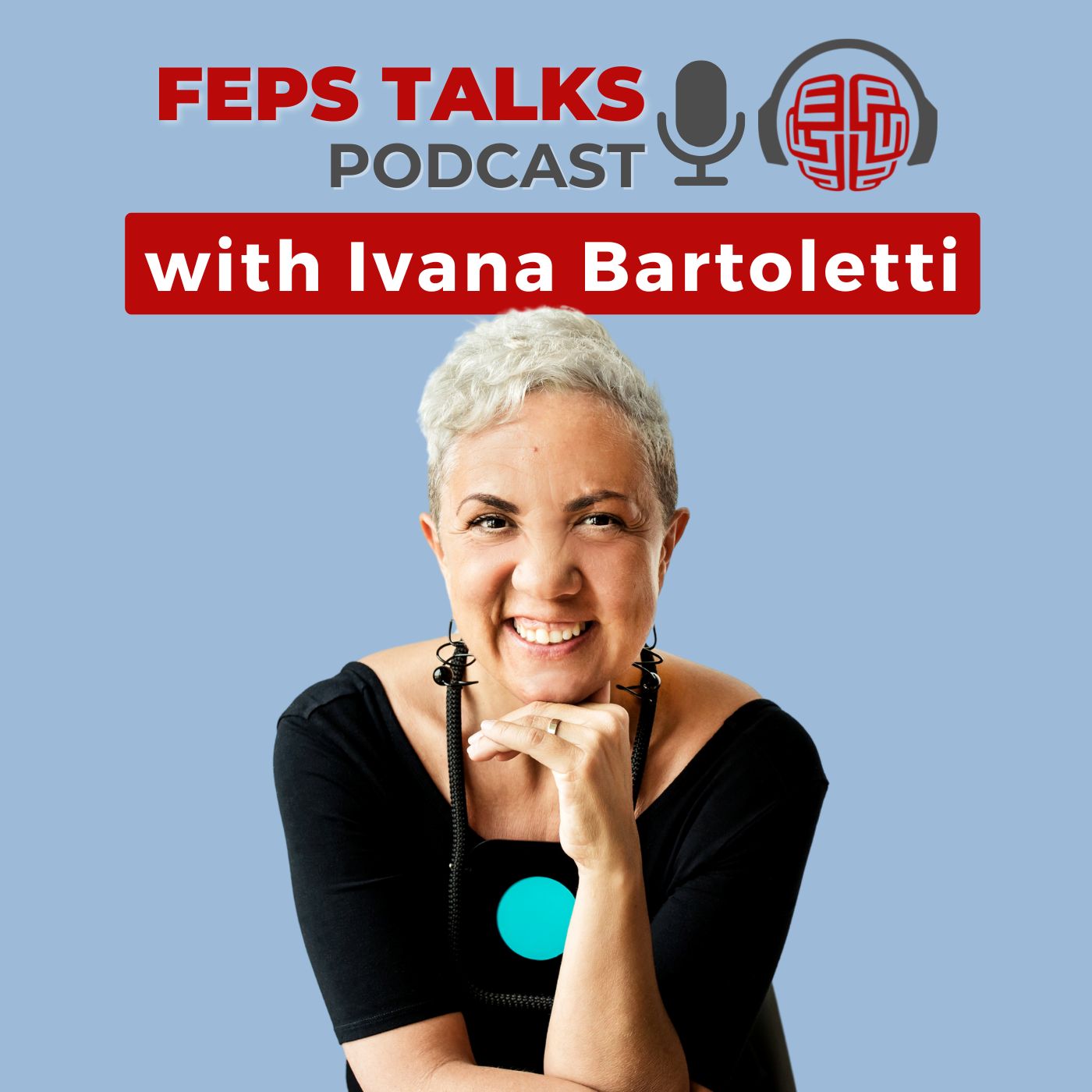
🔊 Available on Spotify and Apple Podcast https://bit.ly/FEPSTalks157
In this episode of our podcast FEPS Talks, Gerard Rinse Oosterwijk, FEPS policy analyst on digital, interviews Ivana Bartoletti. She is the Global Chief Privacy & AI Governance Officer of Wipro and an executive Fellow at Pamplin Business School, Virginia Tech, and author of FEPS Primer Series book on 'A Digital Union based on European Values'. Ivana Bartoletti's work offers insight into how digital policy has been made at the EU level, the main tools used, the most important actors and the path forward.
In the pod...
Eastern Germany Votes: Far-Right Gains and European Implications with Sabrina Repp
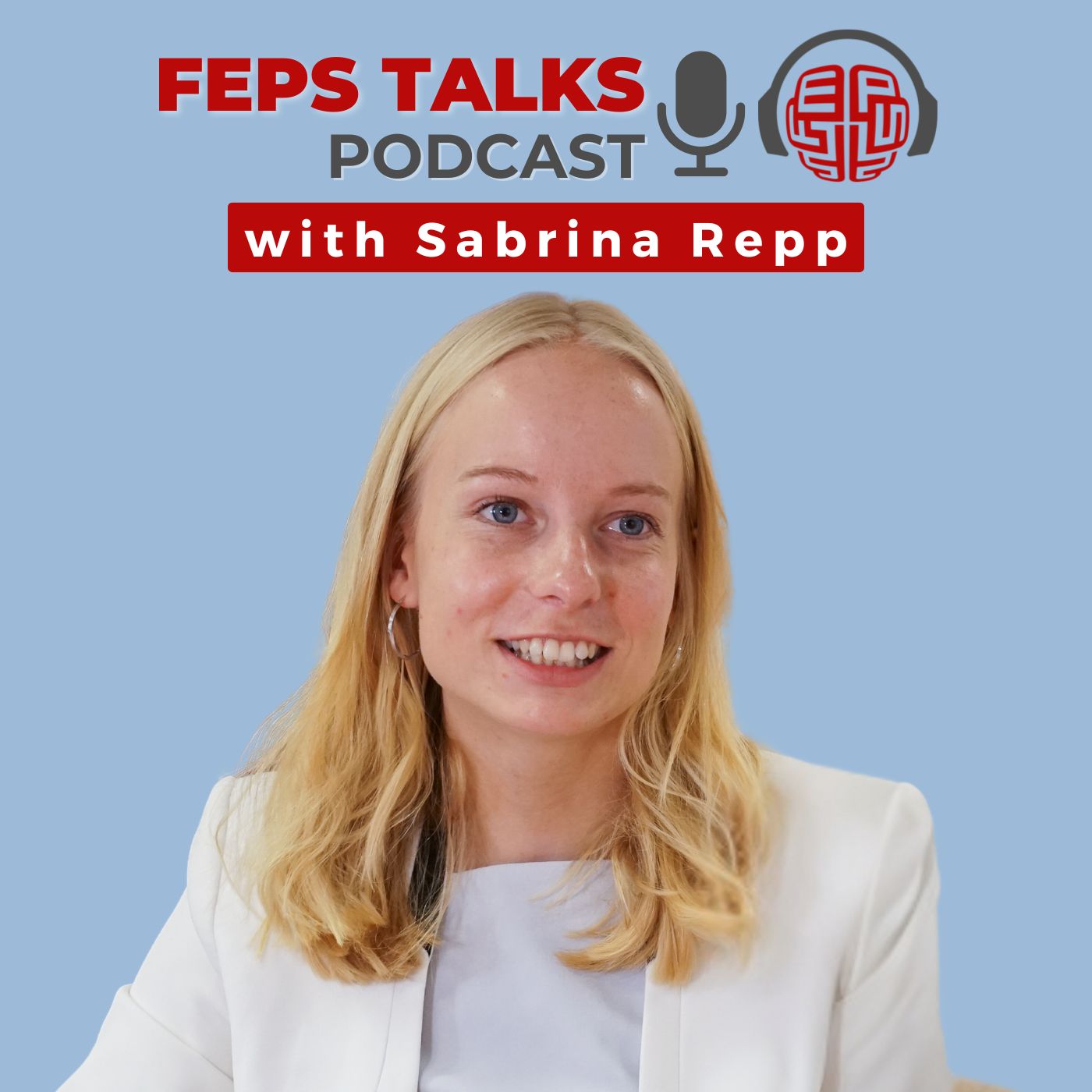
🔊📺 Available on Spotify, YouTube, and Apple Podcasts
In this episode of FEPS Talks, host Matteo Dressler, our Policy Analyst for democracy and participation, sits down with Sabrina Repp, the youngest member of the European Parliament representing the S&D Group. With a background in activism for Germany's Young Socialists (JUSOS), Sabrina brings a fresh and youthful perspective to European politics.
The conversation touches on her experience as a young MEP, as well as the recent elections in Eastern Germany, where the far-right Alternative für Deutschland (AfD) made significant gains. Sabrina provides insight into the politic...
Migration: it’s time for a paradigm shift! with Ottilia Anna Maunganidze
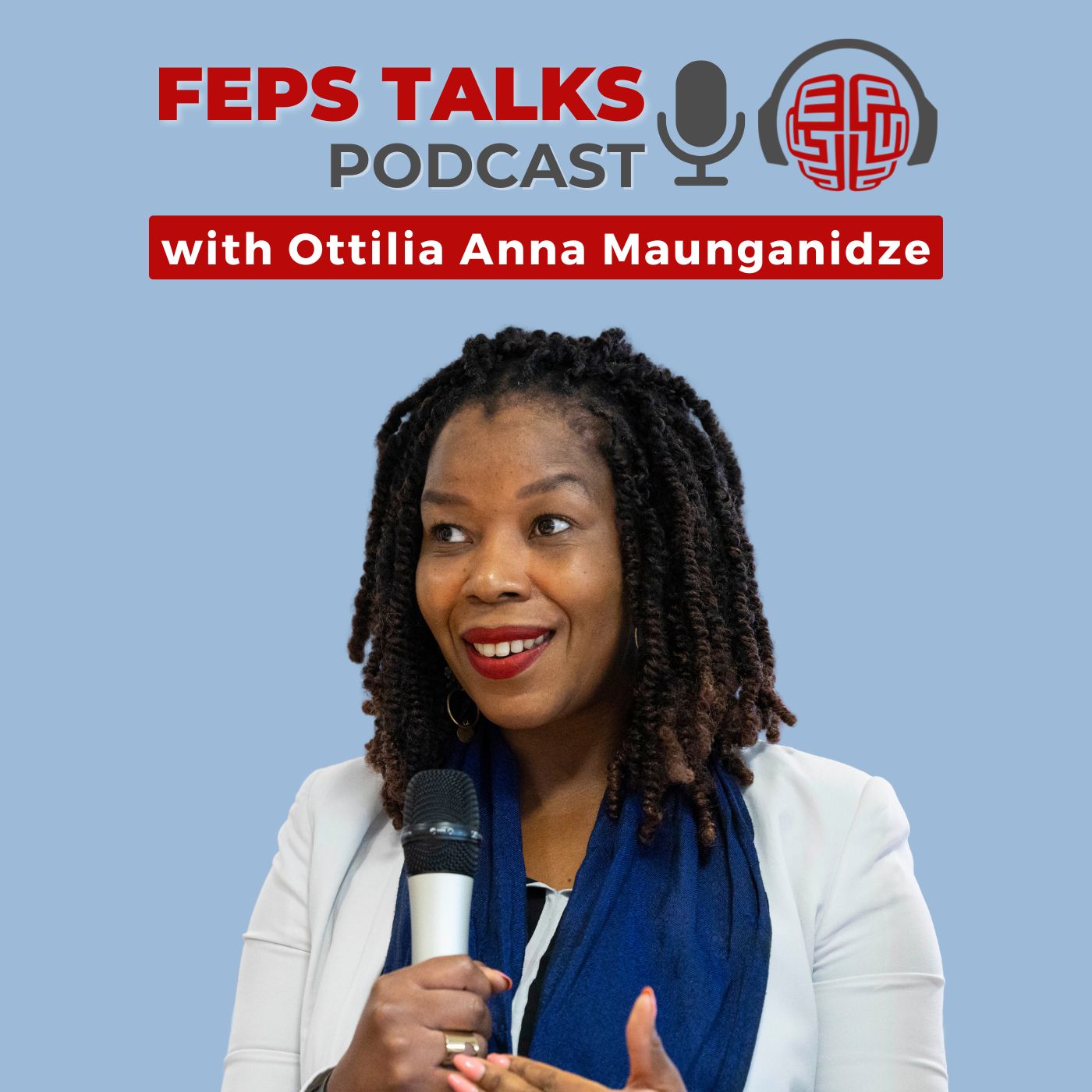
🔊📺 Available on Spotify, Youtube and Apple Podcast
FEPS Head of Communications Ainara Bascuñana interviews Ottilia Maunganidze, lawyer and Head of Special Projects in the office of the Executive Director at the Institute of Security Studies, based in South Africa, and member of the Progressive Migration Group.
Following the Progressive Migration Group Conference on September 10, Ottilia discusses the New Pact on Migration and Asylum from the viewpoint of African countries and the pressing need to abandon the current stagnant and toxic narratives on migration that portray migration as a threat when it is a major driver...
Financing the green & social agenda with Matthias Kollatz
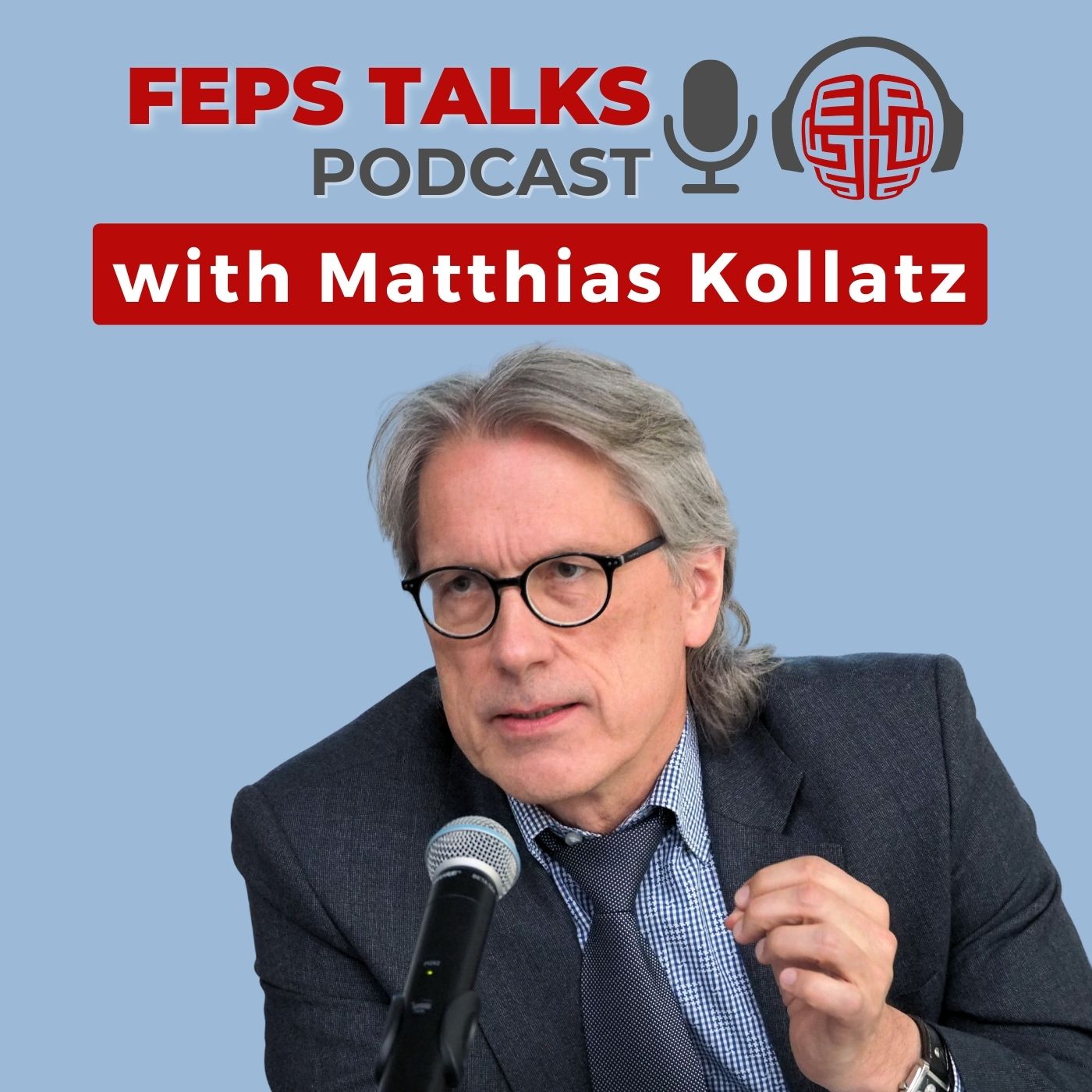
Matthias Kollatz has been working on public finance in various positions: as Vice-President of the EIB in Luxembourg but then as Financial Senator of Berlin. Here he shares his views about what changes the great financial crisis of 2008-9 brought about, and how important it has been in a post-crisis model to elevate promotional banks into a more central role.
He acknowledges some important steps of this financial transition, like the Juncker Plan that was launched in 2014. However, he believes that the German debt break (Schuldenbremse) is a product of a time when the investment needs of...
Reporting for a stronger economy with Iain Begg
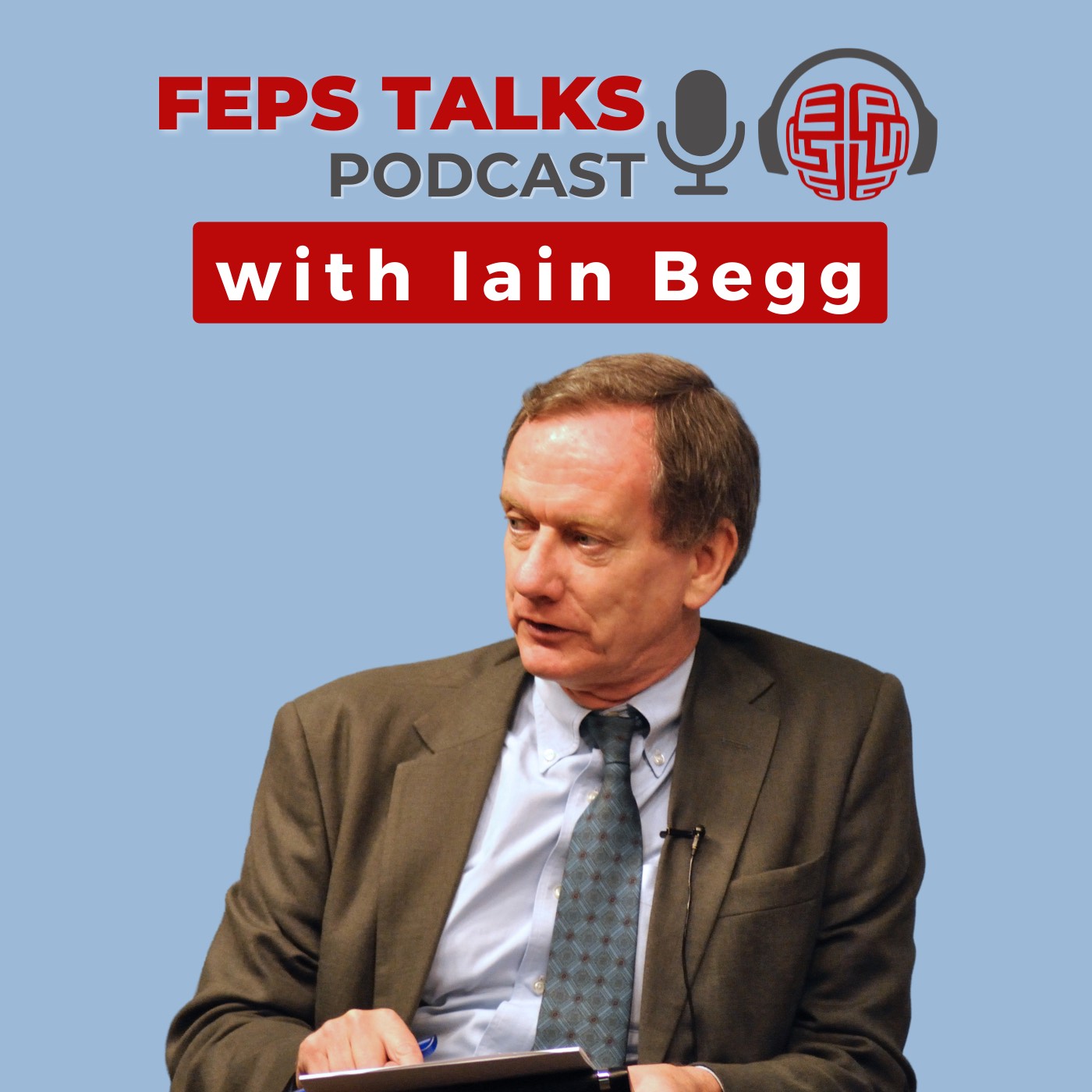
🔊 Available on Spotify and Apple Podcast
Professor Iain Begg (European Institute, London School of Economics and Political Science) shares his views about two reports which have become key talking points in 2024 in EU circles: one written by Enrico Letta and another one authored by Mario Draghi. Though reports often fade away after they are published, the EU is bound to discuss the internal market as well as competitiveness to develop a coherent economic policy for the coming cycle.
According to Prof. Begg, a thorough analysis of the EU's finances (not just the conventional budget, but the...
Post EU election analysis with Sergei Stanishev
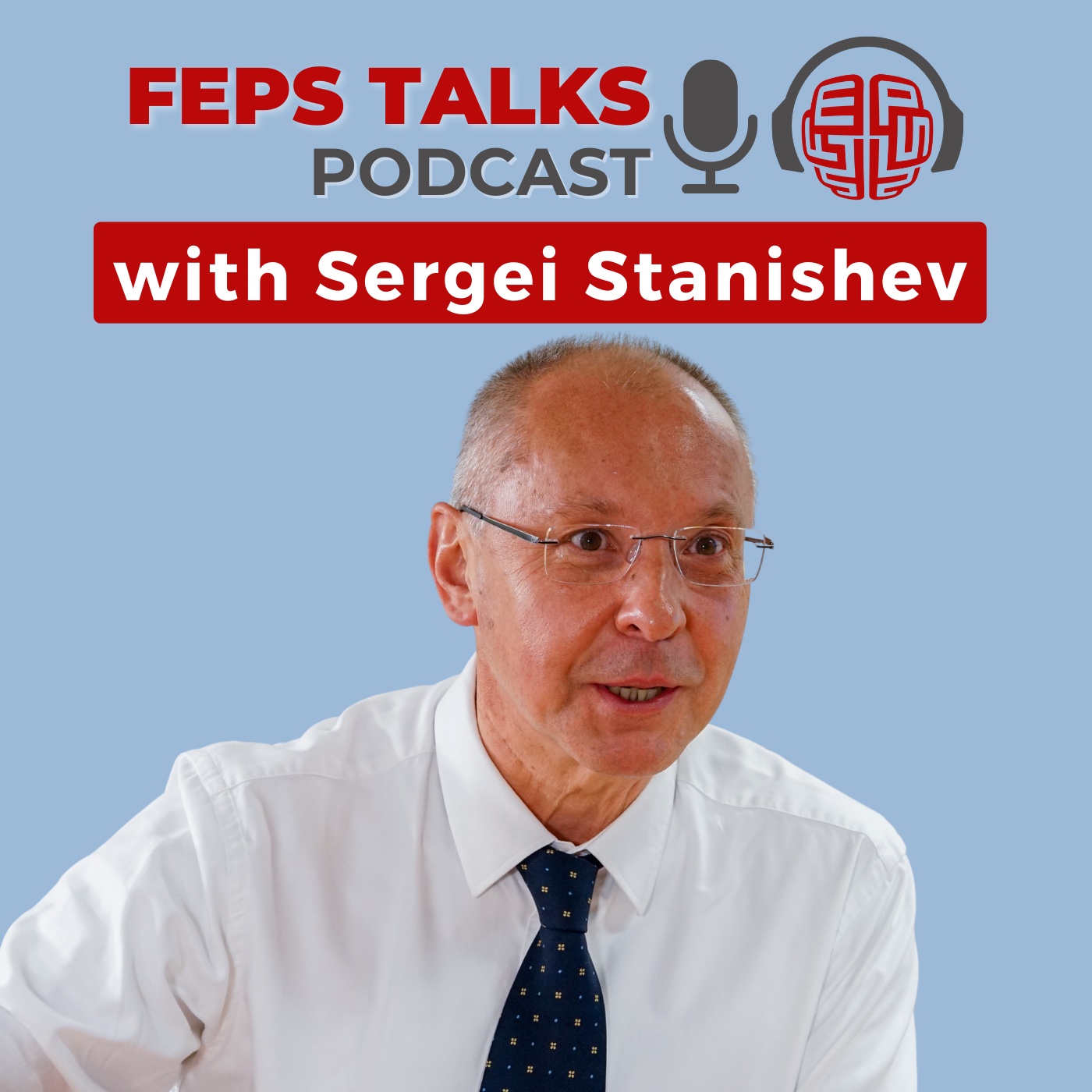
🔊📺 Available on Spotify, Youtube and Apple Podcast
In this episode of FEPS Talks we welcome Sergei Stanishev, who is leaving the European Parliament after ten years. He summarises his insights gathered as a MEP, but also as the President of the Party of European Socialists, a position he held between 2011 and 2022.
He assesses the EP election outcome from a socialist perspective, and reflects on the evolution of EU social democratic politics over the recent decades. The conversation reaches out to topics including the Green Deal, migration, as well as the prospects of creating peace in Easter...
Polarisation and volatility within the alliances with Matthias Ecke
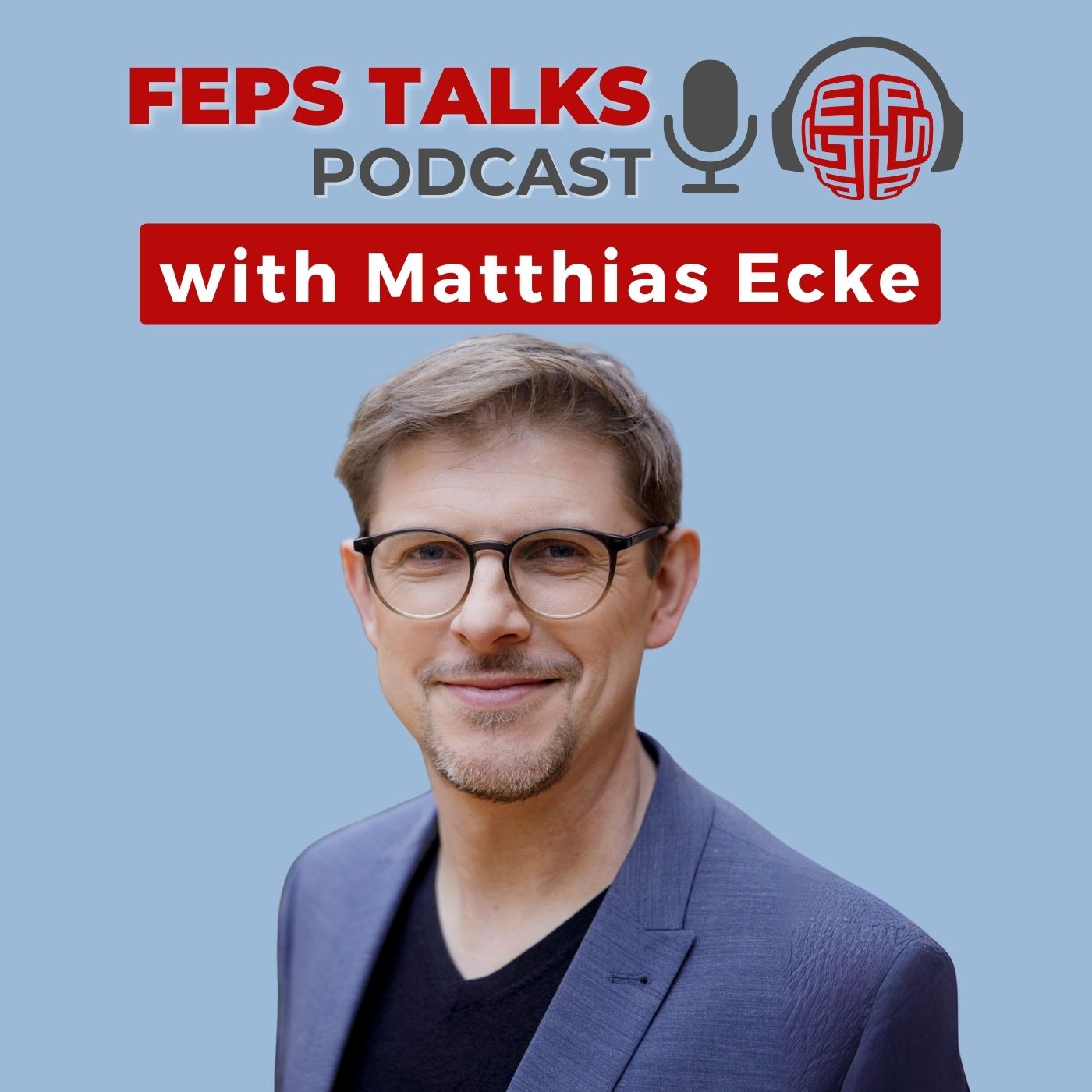
What is the Progressive strategy to succeed in 2024-2029?
This podcast was recorded just a few hours after the polling stations across the EU closed. It features Matthias Ecke, a returning Member of the European Parliament from SPD in Germany. Together with him, Ania Skrzypek, FEPS Director for Research and Training, dives into the campaign's evaluation, analyses the outcomes and considers successful progressive strategies for the future. Jointly, they search for answers on how to halt the march of the right-wing radicals further and safeguard politics from aggression, but even more so, how to bring the attention of the...
Feminist leadership for systematic change with Joanna Maycock
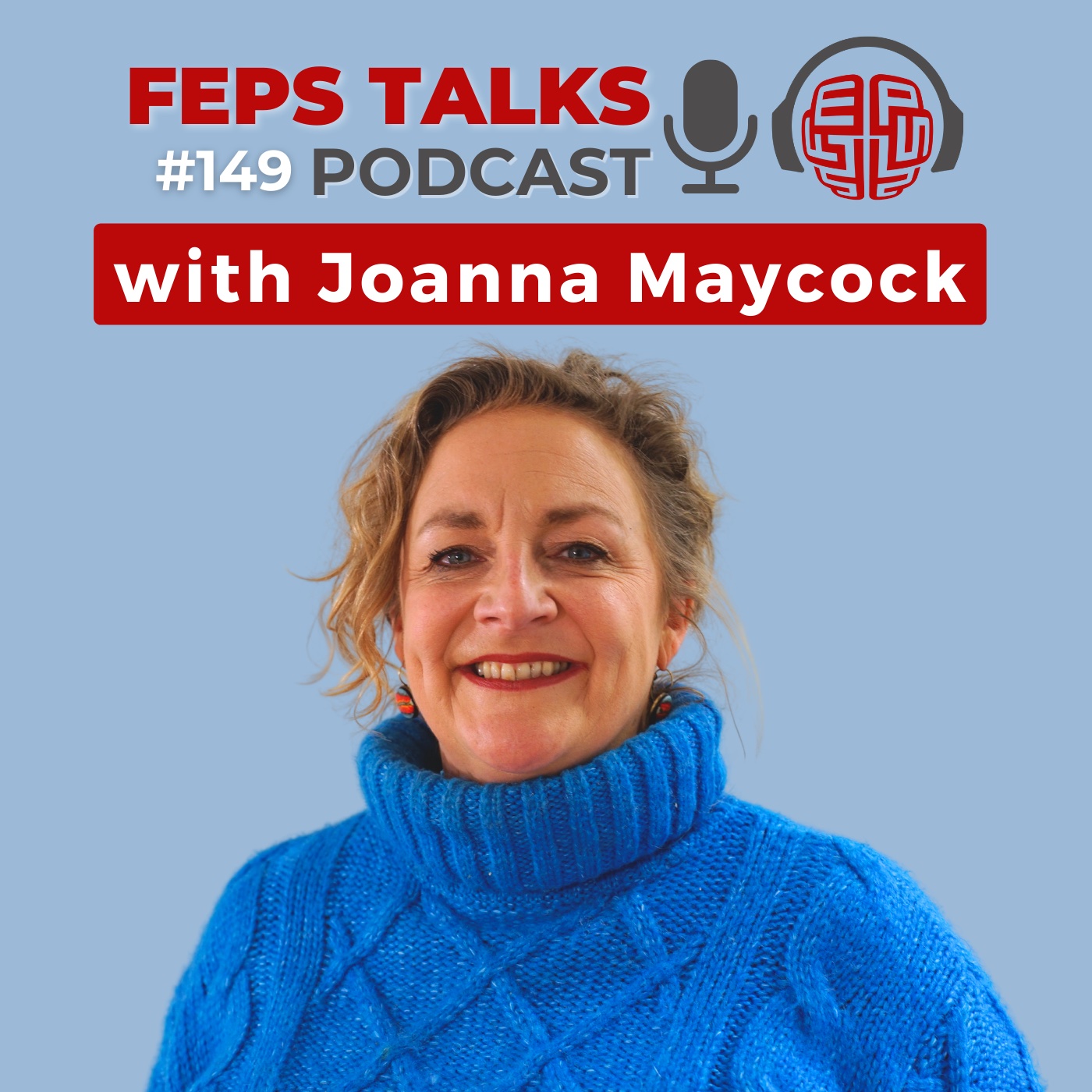
FEPS Talks #149
🔊📺 Available on Spotify, Youtube and Apple Podcast
This episode of FEPS Talks features Joanna Maycock, an award-winning feminist campaigner and co-author of the policy study “Women Civil Society Organisation Leaders for systemic change.” Interviewed by Ainara Bascuñana, Head of Communications at FEPS, Joanna analyses how transformational feminist leadership is the key to addressing society's increasingly complex challenges and to a paradigm shift towards more sustainable, caring and inclusive societies.
They also delve into the study's findings, bringing to the forefront the data and remaining barriers female CSO leaders face in the workplace. The episode...
Leading social and employment action at the EP with Agnes Jongerius
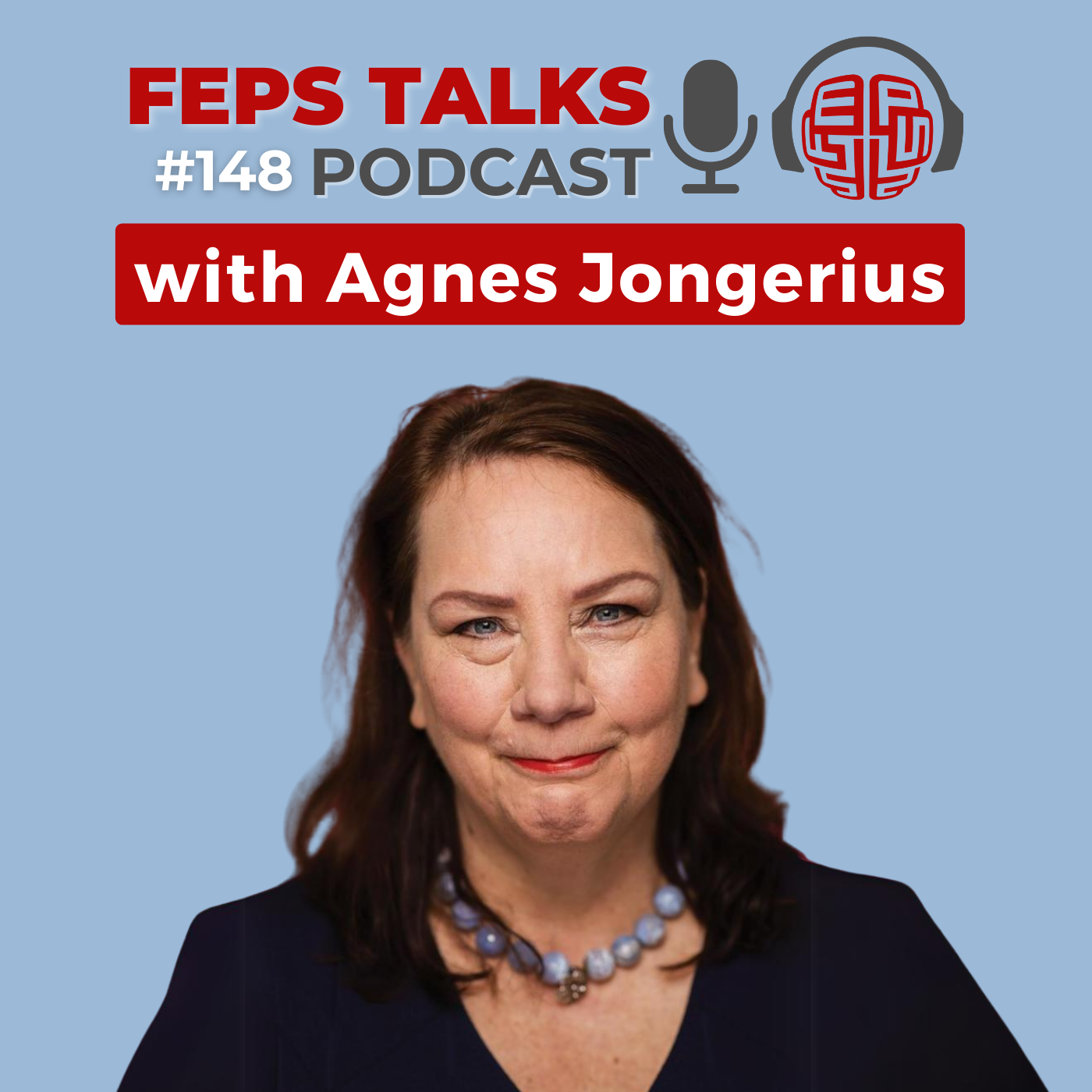
🔊📺 Available on Spotify, Youtube and Apple Podcast In this episode of FEPS Talks, MEP Agnes Jongerius, Head of the Dutch Delegation to the S&D Group, for which she’s also coordinator in the EMPL committee, looks back at the activities of this legislature to take stock of the achievements done on minimum wages and platform work.
She explains the relevance of representing workers’ interests within the European Parliament and stresses the work done with the progressive family at the European level, in collaboration with the EU Commissioner Schmit and PES, for which she leads the Social Europe Net...
Unions for a New Social Agenda with Esther Lynch

🔊📺 Available on Spotify, Youtube and Apple Podcast
Inspired by the recent conference organised by the Belgian presidency of the EU Council on Social Europe, ETUC General Secretary Esther Lynch shares her assessment of the „La Hulpe declaration”, and expresses some regret for the lack of full support from the side of business. She offers a shortlist of the most important achievements of the current EU mandate, praising EU Commissioners Nicolas Schmit and Helena Dalli. She elaborates on the high risk of returning to an austerity focused macroeconomic policy in the EU, while the workers of Europe would need a new...
Social democracy and the working class with Jonas Pontusson
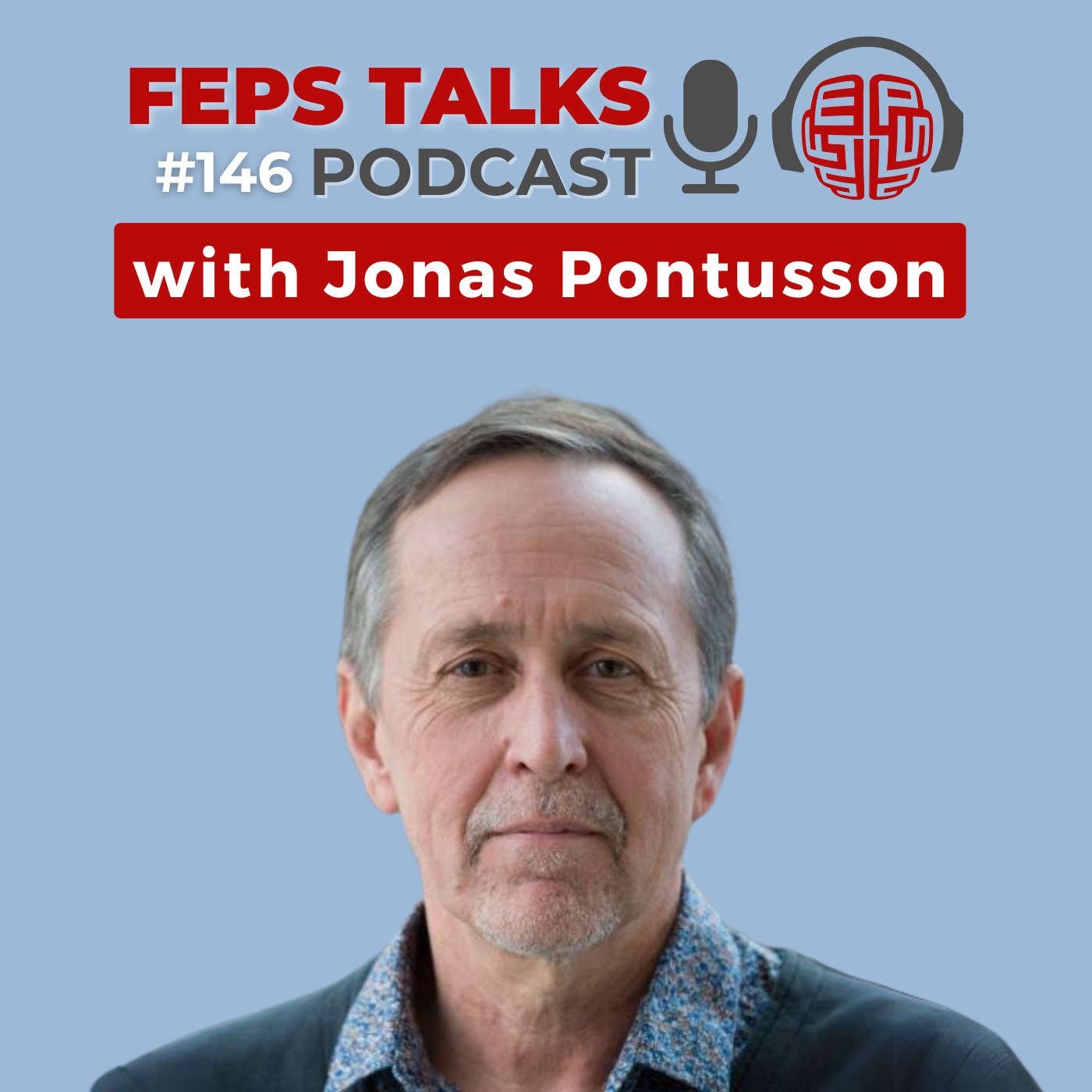
FEPS Talks 146
Professor Jonas Pontusson is sharing his views about the need for a “social democratic renewal”. There is no simple recipe for this, and one needs to research political economy as well as sociology for a proper assessment of the dynamics of progressive politics today. But the discussions on the decline of social democracy already started in the early 1990s, after which the rise of the “Third Way” created a feeling of revival for a while. In the long run, a most critical relationship is the one between social democracy and the working class. The assumption that the working...
Brexit: A cautionary tale with Catherine Barnard
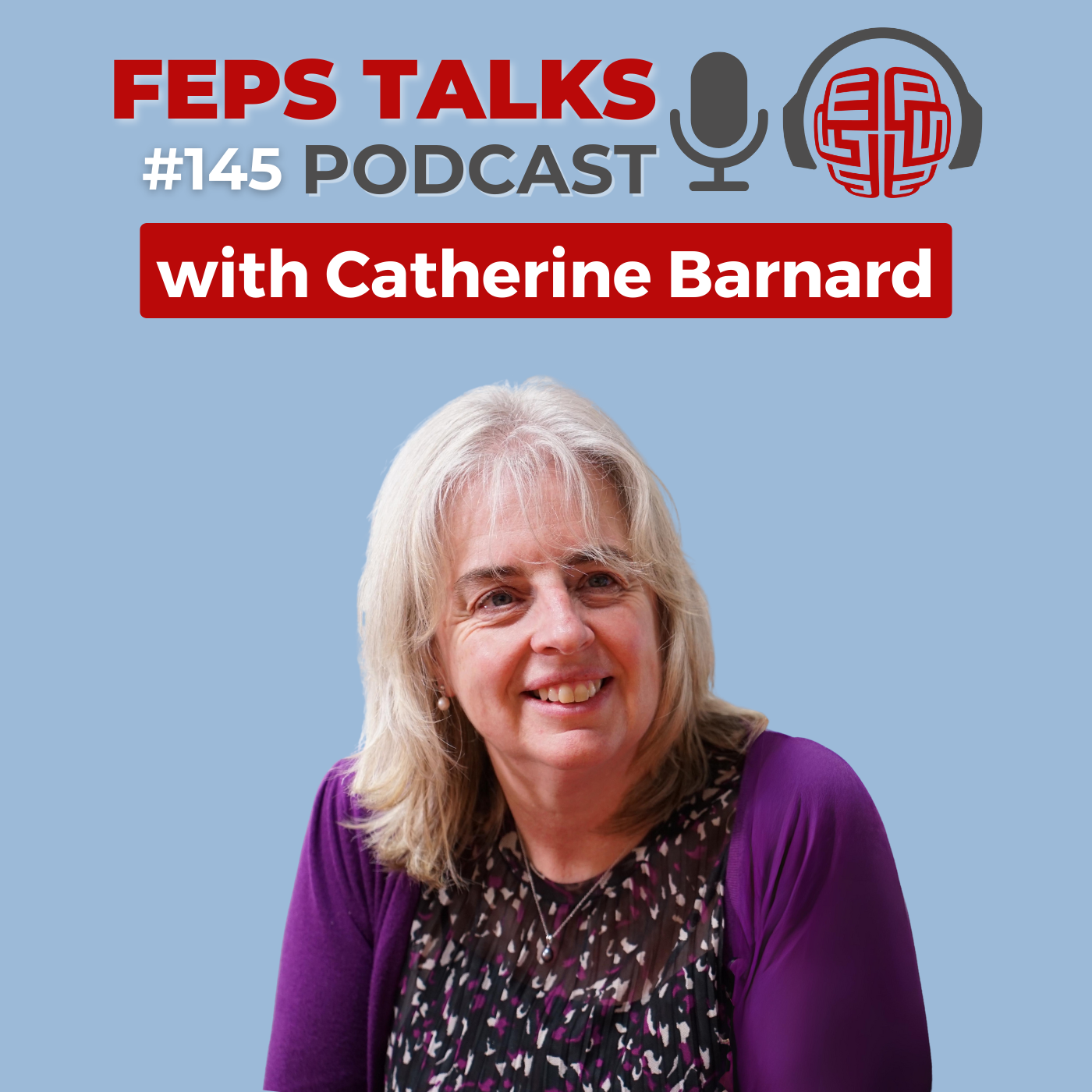
FEPS Talks 145
Brexit is not an issue of the past but the present, and it remains with us for the foreseeable future. FEPS Secretary General László Andor discusses its causes and consequences with Professor Catherine Barnard (University of Cambridge, Trinity College). They agree that in 2016 the pro-Brexit side in reality voted against EU membership, but not for a clear vision of the UK outside of the EU, and the UK is still working out what it wants to be as a country and where. The animosity against the EU had developed over time and across political spectrums, not ju...
Social Europe: Vision and Vigour with Björn Hacker
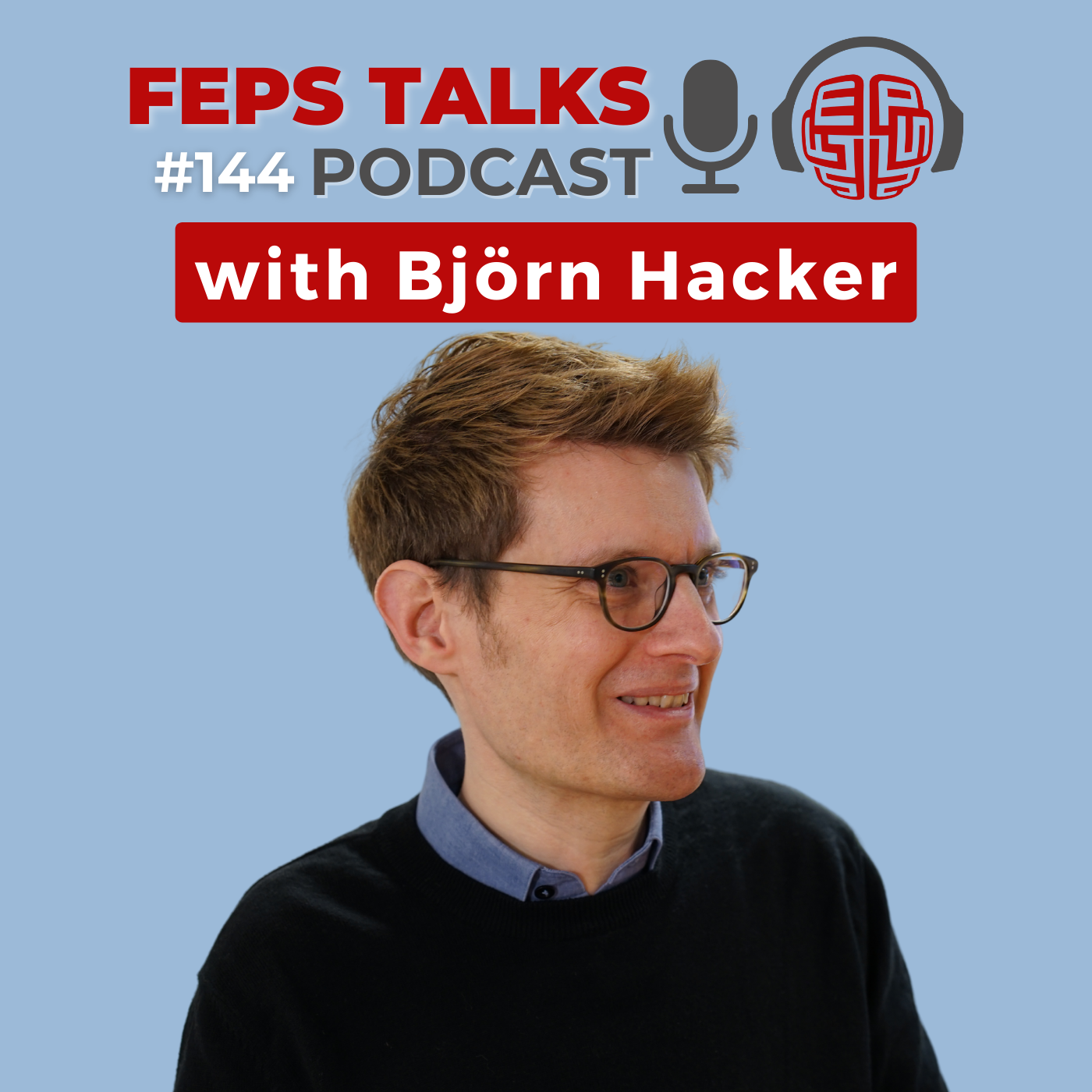
FEPS Talks #144
Professor Björn Hacker authored a book about Social Europe for the FEPS Primer Series. Secretary General László Andor interviews him about some key aspects of the book, and especially about the evolution of the paradigm. Key thinkers and political leaders like Willy Brandt, Jacques Delors and Maria Joao Rodrigues are mentioned during the conversation, which also elaborates on why the assessment of EU social policy must pay attention to economic governance at the same time.
A key part of this joint reflection focuses on the significance of the 2017 European Pillar of Social Rights, and...
The social economy and the Polanyian perspective Marguerite Mendell
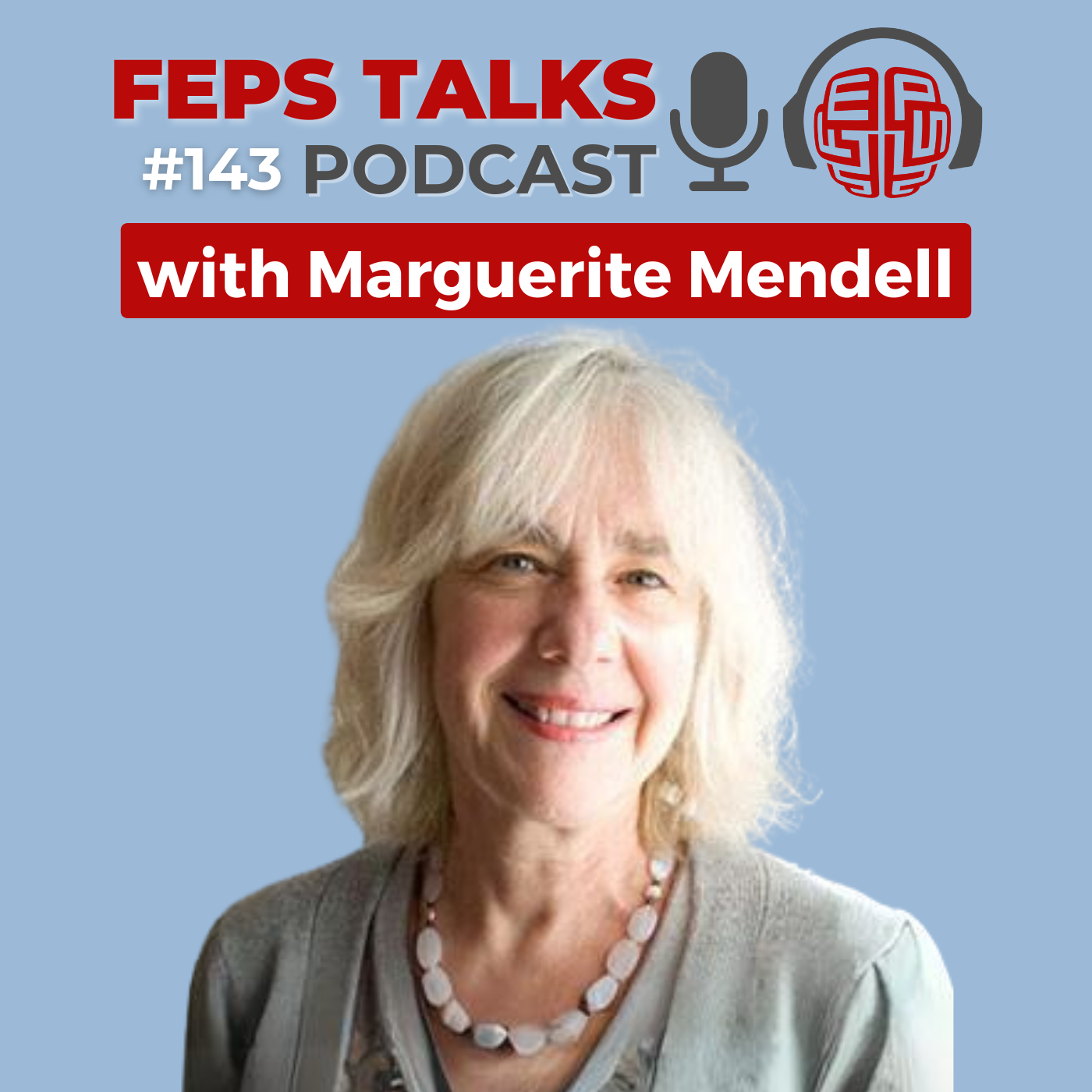
In this episode of FEPS Talks, Professor Emerita Marguerite Mendell (Concordia University) shares some lessons from her long-term engagement with the development of the social economy in Quebec, but also her contribution to related discussions in Europe and various international organisations.
In her view, a number of European countries offer remarkable examples of social economy transitions and experiments, and also at European Union level there have been important initiatives to develop the necessary ecosystem. The question that remains nevertheless is how to assure implementation within member countries.
Going beyond a transatlantic comparison, she also mentions...
Interview with Minister Teresa Ribera, FEPS Progressive Person of the Year
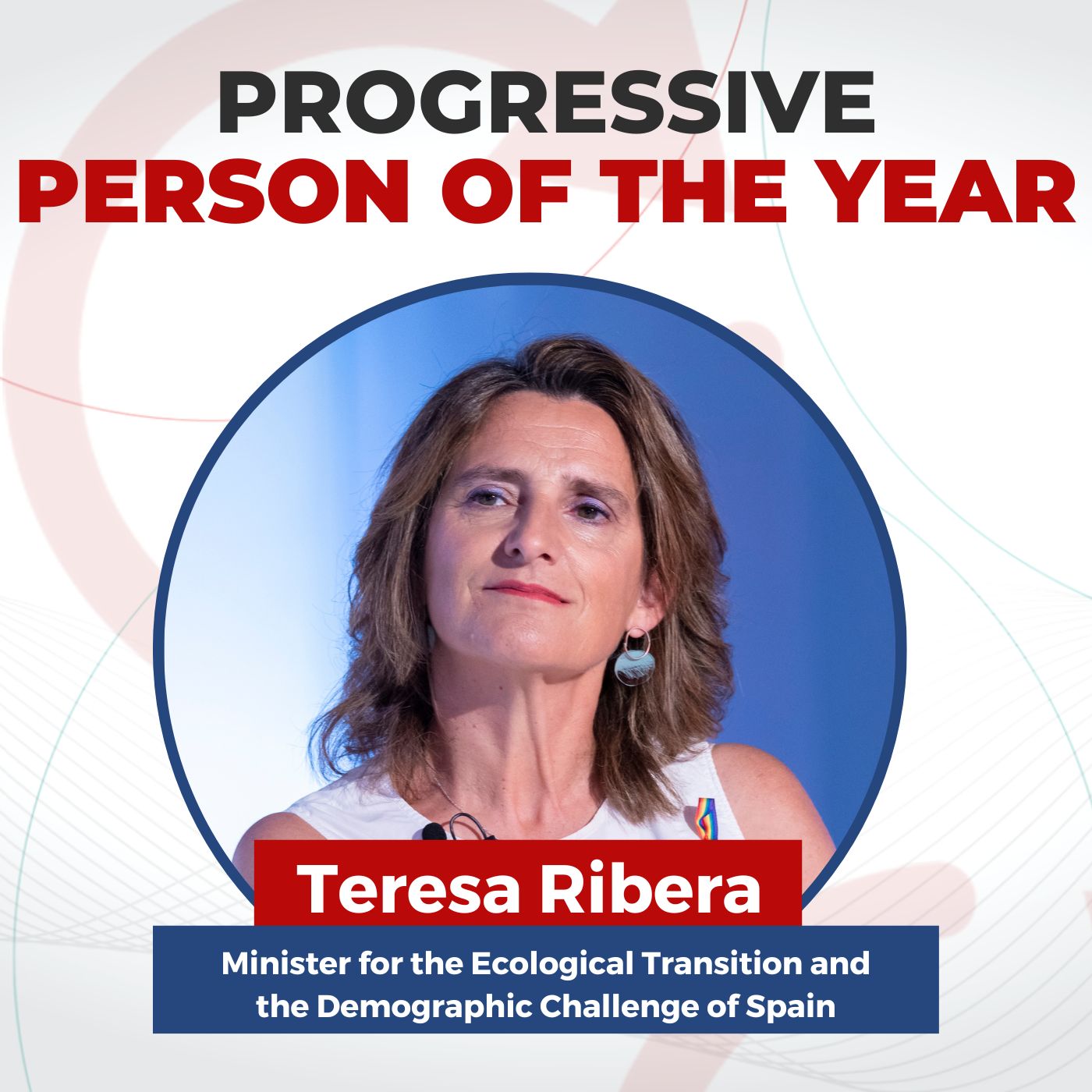
Teresa Ribera, Third Vice-President of the Spanish Government and Minister for Ecological Transition and the Demographic Challenge, receives the Progressive Person of the Year award from the Foundation for European Progressive Studies (FEPS) this Wednesday, January 24th, 2024.
Ribera is an outstanding leader and international policymaker in the fight against climate change who has helped European socialists develop a robust climate agenda over the past decade.
FEPS awards the title of Progressive Person of the Year to social democratic policymakers who contributed to the most important progressive policy initiatives of the past year. Previous recipients include...
Global China and European derisking - FEPS Talks #141
Emeritus Professor Jeffrey Henderson explains the key factors behind the outstanding growth performance of the Chinese economy in the past 40 years. He opines that this era of rapid growth seems to be coming to an end, but the systemic rivalry between China and the USA remains a dominant issue in the period ahead. The position Europe takes in regard to this rivalry will be decisive for our global future. The volume and nature of Chinese investment and the methods applied to access natural resources and acquire advanced technology justify a derisking strategy on the side of the European Union...
A new peace process needed - FEPS Talks #140
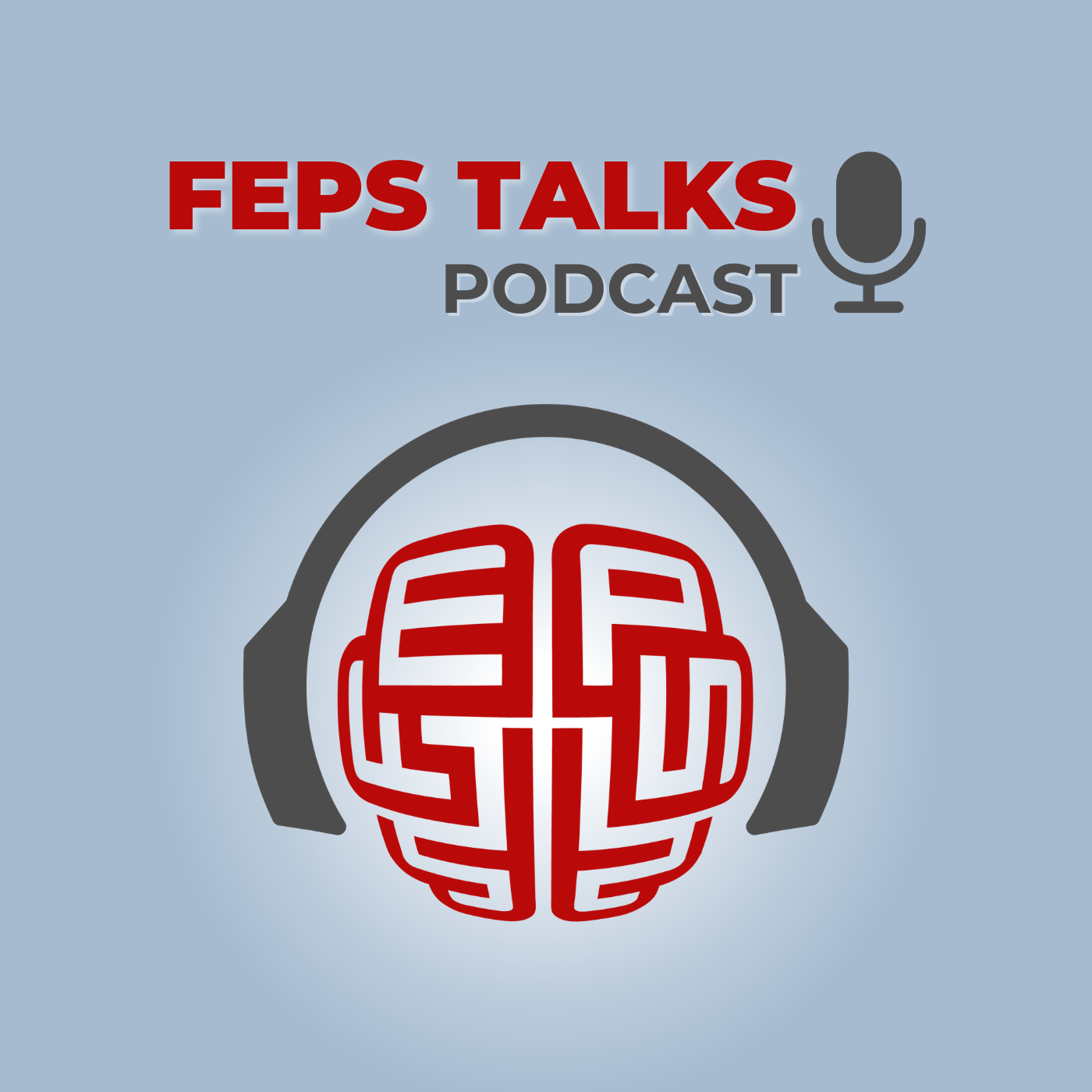
FEPS Talks invited Israeli political scientist and former minister Yossi Beilin to reflect on the tragic developments in Israel in the past month. Dr Beilin was an active participant of the Oslo peace process in the 1990s and, together with FEPS Secretary General László Andor, he elaborates on the chances of a new peace process after the October 7 terrorist attack by Hamas. He compares this shock to that of 9/11 in 2001 suffered by the United States, and highlights the role of leaders who need to find a constructive solution to such complex situations. Dr. Beilin insists that a new pe...
#139 FEPS Talks 'Lula's new government: The prospects for the EU-Brazil relations'
Prospects for Brazilian foreign policy and relations with the EU
Brazil's political landscape fascinates experts across the globe due to its vibrant democracy, complex socio-political landscape, and the country's ability to navigate diverse ideologies and challenges while continuously striving for progress. Brazil's voice and actions have the potential to shape global policies and contribute to finding solutions to pressing global challenges, such as climate change, sustainable development, and changing peace and security architecture. What will the presidency of Luiz Inácio Lula da Silva bring? To find out more listen to our new episode on EU-Brazil relations with Maiara F...
#138 FEPS Talks 'Policies and pacts for better migration'
Dr. Steffen Angenendt, Senior Fellow at the German Institute for International and Security Affairs (SWP), and László Andor, FEPS Secretary General
FEPS Secretary General László Andor speaks with Dr. Steffen Angenendt, Senior Fellow at the German Institute for International and Security Affairs (SWP) in Berlin. Dr. Angenendt has been involved in migration research and debates in the last three decades and offers an overview of the evolution of policies in German and European context. The 2015 migration crisis is a major milestone which gave rise to Willkommenskultur in Germany but also put more light on the death of thou...
#137 FEPS Talks: Families in crisis – and the case for a progressive child policy
Professor Gösta Esping-Andersen, Professor of Sociology at Pompeu Fabra University, and László Andor, FEPS Secretary General
In Barcelona, FEPS Secretary General, László Andor, talks with Professor Gösta Esping-Andersen, whose name is familiar to all who have studied sociology or political economy in the last 30 years. They explore the connection between the role of families in reproduction, the quest for gender equality, and rising social inequalities. Professor Esping-Andersen shares his view about the resilience of welfare states against crises such as the pandemic but also the current war in Ukraine, and he does not hide his opinio...
#136 FEPS Talks: Protecting and enhancing welfare in Europe
Anna Diamantopoulou, President of DIKTIO, and David Rinaldi, FEPS Director of Studies and Research
Anna Diamantopoulou, President of DIKTIO, former minister in Greece and former EU Commissioner for Employment, Social Affairs and Equal Opportunities, engages in a talk with David Rinaldi, FEPS Director of Studies and Policy, to reflect on the ongoing and upcoming societal transformations that require innovation and ambition on welfare policy. The exchange looks at the contribution of the Commission’s ‘High-Level Group on the Future of Social Protection in the EU and of the Welfare State in the EU Members’ which President Diamantopoulou chaired. What are th...
#135 FEPS Talks: For a renewed and re-empowering global ambition
Benedicta Lasi, Secretary General of Socialist International, and Ania Skrzypek, FEPS Director for Research and Training
Benedicta Lasi, Secretary General of Socialist International engages in a lively debate with Ania Skrzypek, FEPS Director for Research and Training, about the political ambition that inspired the opening of the new chapter of the SI. She shares insights regarding the strategy that will make this international organisation a powerhouse able to rise to the contemporary global challenge and support the cooperation of the sister parties worldwide.
#134 FEPS Talks: Green Data: on the interplay of the twin transitions of digitalisation and climate
Dr Kerstin Hötte, University of Oxford and the Alan Turing Institute and Gerard Oosterwijk, FEPS Digital Policy Analyst
The coming decades will be characterised by two significant technology challenges: climate change mitigation and digitalisation. The technological transition associated with climate change follows clear and well-defined goals. In contrast, digitalisation does not pursue a clear objective and is commonly understood as a self-driving process of technological progress.
During this FEPS Talk, Dr Kerstin Hötte, the University of Oxford and the Alan Turing Institute and Gerard Oosterwijk, FEPS digital policy analyst, discuss the positive and negative interactions ac...
#133 FEPSTalks: The successes and critical aspects of the NextGenEU
Jérôme Creel, Director for Research at Sciences Po, OFCE and David Rinaldi, FEPS Director of Studies and Policies
Jérôme Creel, Director for Research at Sciences Po, OFCE and David Rinaldi, FEPS Director of Studies and Policies, discuss and elaborate on the policy study: Making Next-Generation EU a permanent tool. They argue that this would open up the possibility of a fundamental political leap: a breakthrough towards a “political Europe”. It could also equip the EU with means to deliver European public goods, steer the transitions and support strategic autonomy.
#132 FEPS Talks "Dark stores and quick commerce: are the riders squeezed for super-fast grocery delivery?"
Rachel Verdin, Research fellow of the University of Sussex Business School, and Gerard Oosterwijk, Digital Policy Analyst for FEPS
Quick-commerce is a service aimed at achieving superfast delivery from ‘dark stores’ to the consumer. And recently, they have boomed! To learn more about these developments, Gerard Oosterwijk, Digital Policy Analyst for FEPS, interviews Rachel Verdin, Research fellow of the University of Sussex Business School. She and a team of researchers investigated three countries (Germany, Spain and the UK), where they unveiled the health conditions of the employees in the sector, their job security and social rights. These firms use work...
#131 FEPS Talks: How to safeguard citizens’ trust in the EU institutions
Professor René Repasi, S&D Member of the European Parliament, and Dr László Andor, FEPS Secretary General
Professor René Repasi, Member of the European Parliament since 2022, reflects together with Dr László Andor, FEPS Secretary General, on how the so-called Qatargate has undermined citizens’ trust in the European Institutions. Both welcome the quick and strong actions taken by the S&D group facing this case of corruption and illegitimate influence. Repasi proposes a plan to avoid such cases of “bad apples” based on improving transparency, accountability, and media attention, and recalls the EP debate of NGOs and lobbies’ regulation. In...
#130 FEPS Talks: Political fragmentation: do the voters simply switch sides?
Tarik Abou-Chadi, Associate Professor at the Nuffield College, Oxford, and Ania Skrzypek, FEPS Director for Research and Training
In this exciting episode, Tarik Abu-Chadi, Associate Professor at the Nuffield College, Oxford, engages in a conversation with Ania Skrzypek, FEPS Director for Research and Training about the reasons for the electoral decline of social democracy and the growing political fragmentation. He shares insights into his new research, which shows that though the radical right has risen that has been no straightforward transfer of the center-left electorate behind.
#129 FEPS Talks "IWD 2023: Taking stock of women’s rights in Europe"
S&D MEP Evin Incir and FEPS Policy Analyst Laeticia Thissen
On the occasion of international women’s day, this podcast takes a closer look at the recent policy developments on the EU gender equality agenda. Taking stock of the persisting barriers in the way of gender equality and women’s rights, Laeticia Thissen – FEPS Policy Analyst on Gender Equality – engages in conversation with Swedish MEPs Evin Incir. Whilst identifying the remarkable set of landmark breakthroughs on major EU policies for gender equality, the discussion also reveals that the road towards a genuine “Union of Equality” is still a rocky one. A...
